TIP: Use ‘Command + F’ to search names and keywords
Tara Abraham

Associate Professor | History | College of Arts
Research interests: History of medicine, history of psychiatry and psychology; professionalization, disciplinary identity, medical pedagogy.
Faculty profile: uoguelph.ca/arts/history/people/tara-abraham
One Health faculty interview with Dr. Tara Abraham: Historical Choices Impacting Today
Dr. Tara Abraham is an Associate Professor in the Department of History at the University of Guelph and her current research focuses on exploring how American psychiatry entered the medical field and gained legitimacy as a form of medicine. She also wants to examine how adding psychiatry as a medical specialty changed psychiatrists’ perceptions of themselves as professionals.
Dr. Abraham views health as a very complex item that is made up of many interconnected elements. There are social determinants, human impacts, environmental impacts, social economic status, race, gender, and more. The three One Health pillars are all connected and
impact the health of each other. We have seen this with many historical pandemics and epidemics, all three pillars are impacted by and affect the other pillars.
When using a One Health approach Dr. Abraham believes that historical research can help to make sense of the present. One Health is about tackling current problems in health and doing so with holistic and interdisciplinary approaches and historical research can look at past health crises, pandemics, problems, social inequalities, and understand how they occurred in the past to make better decisions today.
One of Dr. Abrahams’ favourite parts of being a part of the One Health faculty is being able to interact with students from many different departments and fields.
_________________________________________________________________________
2023. Authored by Sarah Makepeace, Collaborative Specialization in One Health
Elif Acar

Associate Professor | Canada Research Chair | Mathematics & Statistics | College of Engineering and Physical Sciences
Research interests: One Health approaches to statistical modelling; high-dimensional data analysis and integration; statistical genetics; nonparametric methods; survival analysis; meta-analysis; and replicability
Faculty profile: https://mathstat.uoguelph.ca/node/588
Sarah Alderman
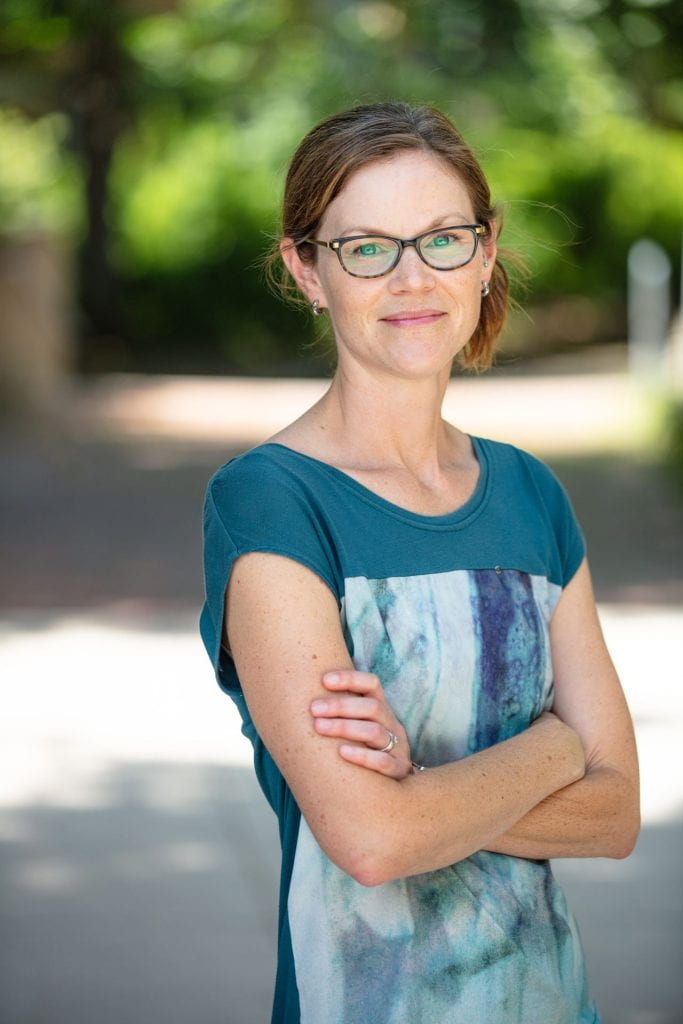
Assistant Professor | Integrative Biology | College of Biological Science
Research interests: Mechanisms and consequences of stress on animal physiology; environmental stressors on neural, endocrine and cardiac systems.
Faculty profile: uoguelph.ca/ib/alderman
Madhur Anand

Professor | Environmental Sciences | Ontario Agricultural College
Global ecological change, sustainability science, ecological modelling, coupled human behaviour-environmental change systems, biodiversity, creative writing.
Faculty profile: ses.uoguelph.ca/people/madhur-anand
Emmanuelle Arnaud
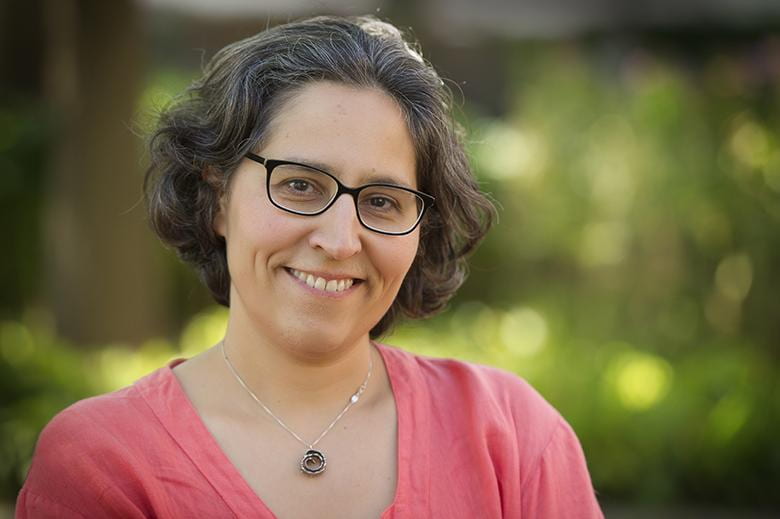
Associate Professor | Assistant Dean, Graduate Programs | Environmental Sciences | Ontario Agricultural College
Research interests: Glacial geology, geology and groundwater, sedimentary geology, environmental geology, deformation structures, ice-marginal settings, agricultural and industrial contaminants, sedimentological analysis, spatial distribution and physical properties of glacial deposits.
Faculty profile: ses.uoguelph.ca/people/emmanuelle-arnaud
Andrew Bailey

Professor | Associate Dean Research and Graduate Studies | Philosophy | College of Arts
Research interests: phenomenal consciousness, physicalism, mental causation and epiphenomenalism, phenomenal intentionality, panpsychism, and theories of perception; the problems of phenomenal consciousness, embodied cognition, and the thought of William James.
Faculty profile: uoguelph.ca/arts/philosophy/people/andrew-bailey
Shane Bateman
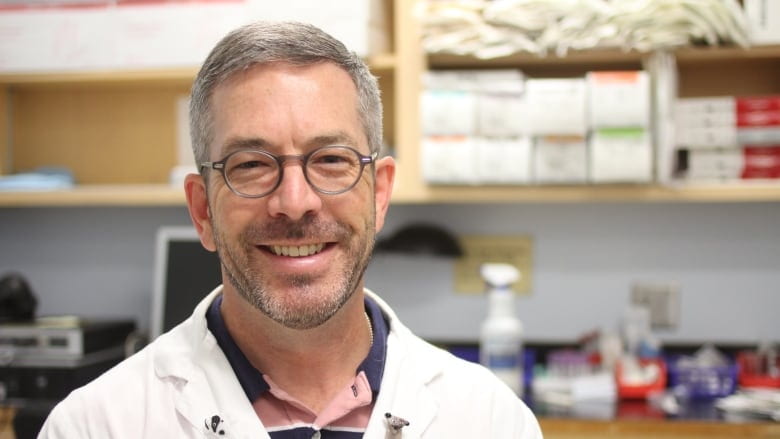
Associate Professor | Clinical Studies | Ontario Veterinary College
Research interests: Community-engaged service learning projects, veterinary palliative care, human-animal bond, coagulation abnormalities, lung injury, pain management and assessment.
Faculty interests: https://ovc.uoguelph.ca/clinical-studies/faculty/shane-bateman/
Cathy Bauman

Assistant Professor | Population Medicine | Ontario Veterinary College
Research Interests: Diagnostic test evaluations (especially using Bayesian methods), epidemiology, dairy small ruminants, and clinical trials.
Faculty profile: ovc.uoguelph.ca/population-medicine/faculty/Cathy-Bauman
Olaf Berke

Associate Professor | Population Medicine | Ontario Veterinary College
Research Interests: Statistical epidemiology, spatial and spatio-temporal epidemiology, biostatistics, zoonoses, environmental epidemiology, disease surveillance, meta-analysis, time series analysis, reproducible research, public health, one health
Faculty profile: https://ovc.uoguelph.ca/population-medicine/faculty/olaf-berke/
One Health faculty interview with Dr. Olaf Berke: Statistics Saves Lives!
Too many cats are abandoned by their owners or surrendered to shelters. As a result, the number of cats requiring shelter often exceeds shelter capacity in many communities. The limited capacity of shelters contributes to an increased number of free roaming cats. This overpopulation can lead to competition with native predators and disease transmission.
As a statistical epidemiologist, Dr. Berke integrated spatial and tempora epidemiology to investigate this overpopulation of cats and the challenges of limited shelter capacity within communities.
Through applying a One Health approach, Dr. Berke’s work paired statistical data analysis of shelter records with stakeholder consultations and collaborations with researchers in Israel.
While a challenge to this approach was gaining access to data from animal shelters, through building strong partnerships and relationships with local animal shelters Dr. Berke was able to navigate this challenge. Leveraging local and international collaborations Dr. Berke’s work resulted in a change in how trap-neuter-and-return (TNR) can be effectively used to control cat overpopulation and how cats are presented at the Guelph Humane Society, to accelerate the adoption process.
Following this work, Dr. Berke, continues to apply biostatistics to better understand and inform approaches to address complex problems within statistics, epidemiology and One Health.
________________________________________________________________________
2024. Authored by Gajuna Mathiyalagan, Collaborative Specialization in One Health
Joey Bernhardt
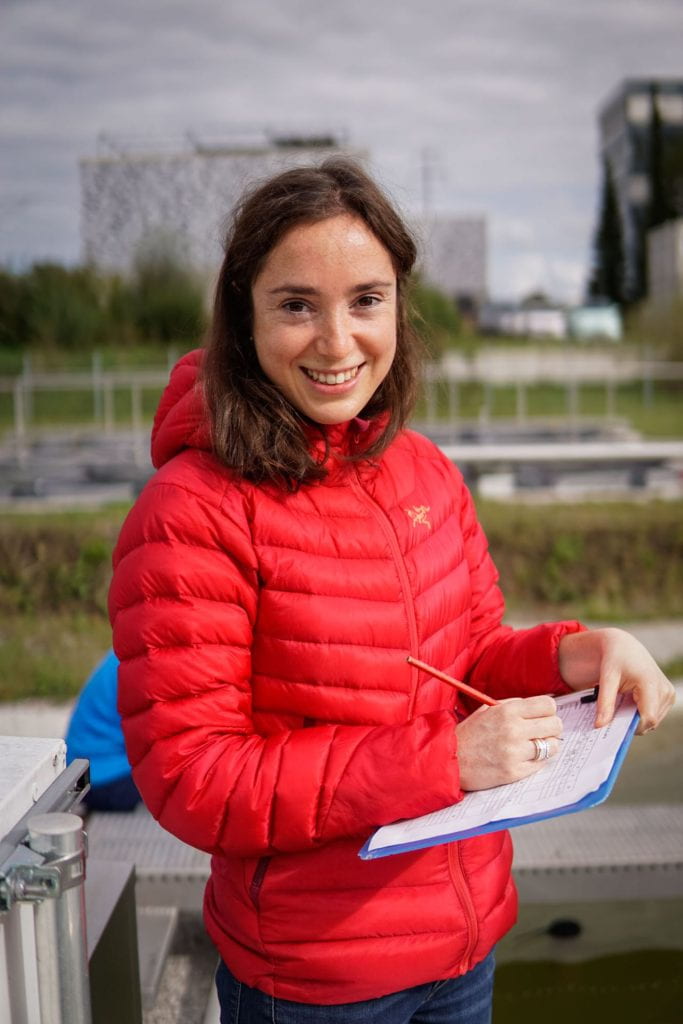
Assistant Professor | Integrative Biology | College of Biological Science
Research interests: My research aims to advance our fundamental understanding of the drivers of biodiversity change and the consequences of these changes for human well-being. My research advances a solution to this research challenge by studying the processes that unite all of life on Earth – the metabolic processes by which living systems uptake, store and convert energy, matter and information from their environments to grow and persist.
Faculty profile: https://www.bernhardtlab.org/
One Health faculty interview with Dr. Joey Bernhardt: Biodiversity and Blue Foods
Dr. Joey Bernhardt is an Assistant Professor and integrative ecologist in Department of Integrative Biology whose research focuses on how living systems respond to global change. Her research primarily explores the impact of climate change on aquatic biodiversity and the consequences to humans from a nutritional perspective.
A One Health approach is the foundation of Dr. Bernhardt’s work exploring the impact of climate change at the organism, population, and community levels. Through her research on seafood and human nutrition, Dr. Bernhardt explores how climate change impacts the health and biodiversity of ocean communities, including “blue foods”, such as shellfish, seaweed, and fishes. This work also examines the consequences of climate driven biodiversity changes on communities who rely on blue foods. When asked how a One Health approach benefits this research, Dr. Bernhardt shared, “I’ve been thinking about humans as part of ecosystems for a long time… If we don’t consider all the components, we don’t understand the whole system.”
Dr. Bernhardt believes that research which crosses disciplinary boundaries is essential for addressing major global challenges such as food security, climate change, and emerging disease. To inform her research goals, Dr. Bernhardt works with local and indigenous communities to understand their needs. “Building trust with community members fosters reciprocity,” says Dr. Bernhardt. “What we do is mutually beneficial in many ways, and we always try to prioritize the needs of the community.”
Although transdisciplinary work can be time consuming for relationship building, involving indigenous communities provides valuable information on how these communities are being impacted by climate change and what questions they want answered.
Dr. Bernhardt is grateful for the opportunity to explore research questions that are truly inspiring, and to be part of University of Guelph and One Health community.
__________________________________________________________________________
2024. Authored by Samantha Hobson, Collaborative Specialization in One Health
Korryn Bodner

Assistant Professor | Population Medicine | Ontario Veterinary College
Research interests: Statistical and mathematical modelling of emerging infectious diseases; disease ecology and zoonotic disease dynamics; ecological and epidemiological network analysis; forecasting and outbreak prediction; assessment of pharmaceutical and non-pharmaceutical interventions; bias and uncertainties in epidemiological data.
Faculty profile: https://korrynbodner.webnode.page/
Emma Borkowski

Assistant Professor | Pathobiology | Ontario Veterinary College
Research interests: Veterinary parasitology, especially parasites of livestock, immune responses to parasites, sustainable parasite control.
Faculty profile: https://ovc.uoguelph.ca/pathobiology/people/faculty/emma-borkowski
Elizabeth Boulding

Professor | Integrative Biology | College of Biological Science
Research interests: Invasion biology, genetic adaptation, genomic selection and growth, shape, and pathogen-resistant traits in Atlantic salmon, assessment of heritable variation in biological control.
Faculty profile: uoguelph.ca/ib/boulding
Samantha Brennan

Professor | Dean | Philosophy | College of Arts
Research interests: Contemporary normative ethics, applied ethics including health care ethics, and feminist philosophy
Faculty profile: uoguelph.ca/arts/people/samantha-brennan
One Health faculty interview with Dr. Samantha Brennan: Ethics in Healthcare
Samantha Brennan is a philosopher whose work addresses problems of exclusion and inequality in healthcare ethics, primarily as it relates to women’s well-being. Her work also focuses on issues of children’s rights and family justice.
How does Brennan’s work contribute to human health? All work in health is guided by ethical principles and frameworks. Traditionally, these frameworks, based on mainstream moral philosophy are based on a concept of the human self that is independent, autonomous, and ideally rational. Broadening these frameworks to include relationships of dependence and interdependence, Brennan’s work helps make room for including children in our ethical theories. This has obvious implications for the scope of healthcare ethics.
It’s exciting to be working in healthcare ethics at U of G where the One Health approach is all about broadening and deepening our understanding of health beyond persons to include non-human animals and the environment. In this context, it’s obvious that healthcare ethics needs to adequately include all persons including the elderly, children, persons with disabilities, and pay attention to the environments in which people live as part of that understanding. Most recently Brennan has been thinking about LGBTQ+ inclusion in bioethics as part of a project on queer approaches to bioethics.
__________________________________________________________________________
2023. Authored by Autumn Perry, Collaborative Specialization in One Health
Byram Bridle

Associate Professor | Pathobiology | Ontario Veterinary College
Research interests: Viral immunology, cancer treatment, personalized therapy, cytokine responses to viruses in males and females, inflammation disorders.
Faculty profile: ovc.uoguelph.ca/pathobiology/people/faculty/Byram-W-Bridle
Ruben Burga

Assistant Professor | Management | Gordon S. Lang School of Business and Economics
Research interests: Organizational leadership and management issues in social entrepreneurship/enterprises; knowledge transfer, stakeholder theory, sustainability and accountability principles and their effect on firm performance.
Faculty profile: www.uoguelph.ca/lang/people/ruben-burga
One Health faculty interview with Dr. Ruben Burga: Responsibility in Entrepreneurship
Dr. Ruben Burga is re-imagining the management world. At the forefront of this new approach is a key focus on sustainability, social responsibility, and accessibility.
As an Assistant Professor in Management at Gordon S. Lang School of Business and Economics and the Graduate Coordinator for MSc Management, Dr. Burga is passionate about developing diverse leaders, teachers, and learners who are engaged and committed to accountability. In his research and teaching, he is a proponent of transdisciplinarity and ‘Big S’ sustainability – a holistic approach to business and organizational management that integrates environmental, social, and economic progress.
“Context is everything” says Dr. Burga, “and central to my work is ‘Big S’ sustainability.”
Dr. Burga weaves these concepts of sustainability and transdisciplinarity into all of his research streams. In his research in project management, he explores how organizations interact as a team, and how accountability is created within an effective team. In another stream of research, he conducts community-driven research projects to facilitate entrepreneurship in underserviced groups – identifying barriers and capabilities unique to both immigrants and Indigenous peoples in their engagement with entrepreneurship.
Dr. Burga also researches transdisciplinary pedagogy. As the University Teaching Leadership Fellow in Interdisciplinary and Experiential Teaching and Learning, Dr. Burga is creating a teaching framework for educators at the University of Guelph that emphasises experiential learning through various forms, such as service and community-engaged activities.
Dr. Burga’s involvement with One Health ties into the United Nations Sustainable Development Goals (SDGs). In his roles as a researcher and an educator, he works at the intersection of many SDGs: quality education (4), economic growth (8), reduced inequalities (10), responsible consumption and production (12), and partnerships (17).
“In particular, [SDG 3] relates to well-being. Social and mental health control how we work together on a project. That social interaction also extends to how students learn.”
When addressing complex One Health problems, it is essential to consider their diverse impacts on various groups and multiple levels of organization. Project management and conflict resolution skills play a crucial role in developing sustainable solutions at the human-animal-environmental interface. Dr. Burga’s work is propelling the next generation of entrepreneurs to be leaders in accountability, sustainability, and inclusion.
__________________________________________________________________________
2024. Authored by Marilyn Sheen, Collaborative Specialization in One Health
Jamie Burr

Associate Professor | Human Health and Nutritional Sciences | College of Biological Science
Research interests: Novel training methods, interventions and supplements which may lead to adaptation and performance improvement; the effects of physical activity, sport, and exercise to alter cardiovascular form and function.
Faculty profile: uoguelph.ca/hhns/people/dr-jamie-burr
Wayne Caldwell

Professor Emeritus (OAC – Rural Planning) | Environmental Design and Rural Development | Ontario Agricultural College
Research interests: The future of rural communities, planning, community development, agricultural land preservation, siting livestock facilities, rural land use, and the environment, measuring farmland loss, immigration in rural communities, food security, and rural resilience.
Faculty profile: uoguelph.ca/sedrd/people/wayne-caldwell
One Health faculty research summary for Dr. Wayne Caldwell: Community Based.
As the human population continues to grow, it is important that we learn how to balance the needs of resource production, housing, and environmental conservation. Dr. Wayne Caldwell conducts research with a focus on land use planning and building healthy rural communities, with current projects focusing on the relationship between aggregate production and agriculture, and farm diversification and economic benefit.
______________________________________________________________________
2021. Authored by Daniel Bayley, Collaborative Specialization in One Health.
Catherine Carstairs

Professor | History | College of Arts
Research interests: History of medicine, history of public health, gender history, dentistry, drug and alcohol use.
Faculty profile: uoguelph.ca/arts/people/catherine-carstairs
One Health faculty interview with Dr. Catherine Carstairs: One Health: A historical perspective
Dr. Catherine Carstairs is a medical historian at the University of Guelph. In the past she has investigated pro-vaccination campaigns in Canada. Her work currently focuses on contemporary vaccine hesitancy during the COVID-19 pandemic.
Dr. Carstairs was interested in the One Health institute as she saw promise for future projects. To date, her work has only very peripherally dealt with zoonotic diseases, but she is interested in exploring this further. . Some aspects that she currently applies to her work are transdisciplinary and collaboration. This past year Dr. Carstairs collaborated with Dr. Amy Greer from the department of population medicine to organize a witness seminar of the COVID-19 pandemic. This collaboration helped Drs. Carstairs reach populations within the other’s networks.
Dr. Carstairs believes that environmental historians have done the most work along these lines – she mentioned that the work of Mitchell Hammond is excellent as well and he really integrates a One Health Approach.
Dr. Carstairs is excited and hopeful about the future of One Health and its application to the field of history.
_________________________________________________________________________
2023. Authored by Keana Shahin Moghaddam Rashty, Collaborative Specialization in One Health
Alex Chan
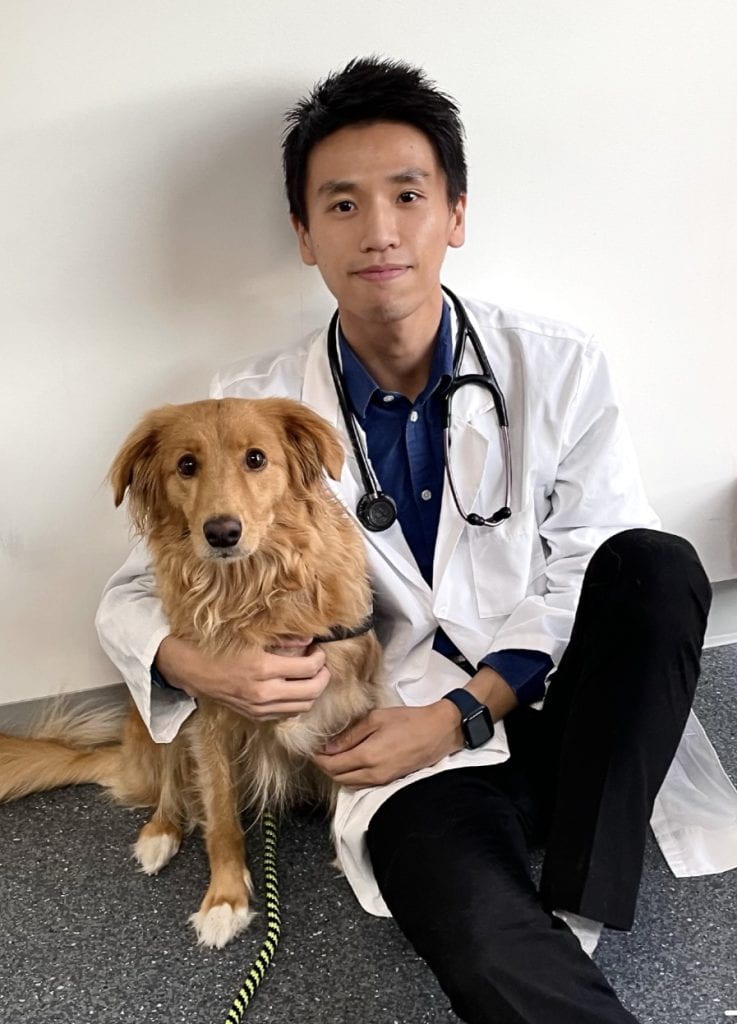
Assistant Professor | Clinical Studies | Ontario Veterinary College
Research interests: Neurocritical care, neuroimaging, neuromuscular diseases, veterinary neurology.
Faculty profile: available soon!
Chris Choi

Professor | Hospitality, Food and Tourism Management | Gordon S. Lang School of Business and Economics
Research interests: Tourist engagement, travel and happiness, conscious consumption, sustainable tourism management, authenticity, value in use and exchange, attitudinal scale development.
Faculty profile: uoguelph.ca/lang/people/hs-chris-choi
Katie Clow

Assistant Professor | Graduate Program Coordinator, One Health | Population Medicine | Ontario Veterinary College
Research interests: Vector-borne and zoonotic diseases, disease ecology, epidemiology, surveillance, One Health pedagogy.
Faculty profile: ovc.uoguelph.ca/population-medicine/faculty/Katie-Clow
Marc Coppolino

Associate Professor | Chair | Molecular and Cellular Biology | College of Biological Science
Research interests: Cell adhesion and migration in disease progression; tumour cell invasion and metastasis; biochemical signalling in health and disease.
Faculty profile: uoguelph.ca/mcb/people/dr-marc-coppolino
Karl Cottenie

Associate Professor | Integrative Biology | College of Biological Science
Research interests: Community ecology, metacommunity dynamics, molecular identification, data analysis in R, instruction, graduate training, Spatio-temporal analysis, computational ecology.
Faculty profile: uoguelph.ca/ib/cottenie
Georgina Cox

Associate Professor | Canada Research Chair | Molecular and Cellular Biology | College of Biological Science
Research interests: How bacteria resist antibiotics and how they interact with their host. Identifying and developing alternatives to antibacterial chemotherapy.
Faculty profile: uoguelph.ca/mcb/people/dr-georgina-cox
Sherri Cox

Assistant Professor | Integrative Biology | College of Biological Science
Research interests: Welfare of wild animals, restoring health to sick and injured wildlife, anthropogenic effects on wildlife that have been admitted to rehabilitation centres, investigating morbidities in individual wild animals admitted to rehabilitation centres.
Faculty profile: uoguelph.ca/ib/Sherri_Cox
One Health faculty interview with Dr. Sherri Cox: Wildlife Rehabilitation in Human-altered Landscapes
Dr. Sherri Cox’s research at the University of Guelph focuses on improving the welfare of wildlife impacted by human activities while preserving ecological balance. By establishing optimal care protocols and promoting knowledge dissemination, her efforts focus on mitigating the effects of human interference and improving outcomes at both individual and population levels in Canada.
Dr. Cox’s work ensures that animals like beavers and bears, vital to ecosystem integrity, receive care that allows them to continue fulfilling their ecological roles. This includes careful management of diseases like distemper and chronic wasting disease, ensuring only healthy animals are reintroduced after rehabilitation.Dr. Cox’s research supports entire ecosystems by focusing on targeted interventions to help animals critical to their habitats. Her current projects and work with the National Wildlife Centre highlight the importance of maintaining healthy populations for overall ecosystem health. Her research also mitigates human-wildlife conflicts and zoonotic disease transmission by educating the public on safe wildlife interactions and the risks associated with infectious diseases such as highly pathogenic avian influenza and toxoplasmosis, which can affect both animals and humans.
Adopting a One Health approach has allowed Dr. Cox to foster a collaborative atmosphere at the University of Guelph, enhancing the integration of interdisciplinary research and bringing together knowledge holders from various fields, such as non-academic wildlife rehabilitation staff, to tackle complex environmental and health issues. This transdisciplinary approach has broadened the scope of her research and ensured its practical application, making findings accessible and beneficial to both academic and public stakeholders.
Dr. Cox has worked to solve the issue of lead toxicity in wildlife, such as Trumpeter swans, due to hunting with lead bullets. By educating relevant stakeholders and the public about the health risks associated with lead and promoting non-toxic alternatives, her team has taken a transdisciplinary approach to reducing the detrimental effects of lead in the environment on both wildlife and human health.
__________________________________________________________________________
2024. Authored by Valentina Gonzalez Rodriguez, Collaborative Specialization in One Health
Rozita Dara

Associate Professor | Computer Science | College of Engineering and Physical Sciences
Research interests: Artificial intelligence, decision support systems, data standardization and integration analysis, information privacy, and data governance.
Faculty profile: uoguelph.ca/computing/people/rozita-dara
Anne Deckert

Special Graduate Faculty | Population Medicine | Ontario Veterinary College
Research interests: One Health; antimicrobial use and antimicrobial resistance in humans, animals, and food; swine health; integrated surveillance; Central Asia
Faculty profile: https://www.uoguelph.ca/osrn/people/anne-deckert
One Health faculty interview with Dr. Anne Deckert: Mitigating Antimicrobial Resistance
Antimicrobial resistance (AMR) poses a serious threat to global health by diminishing the effectiveness of antibiotics, which can be addressed through understanding livestock health management. Researcher Dr. Anne Deckert of the Ontario Veterinary College is part of a collaborative team in public health surveilling AMR in swine to safeguard human and animal health.
Dr. Anne Deckert’s research at Canada Integrated Program for Antimicrobial Resistance Surveillance (CIPARS) involves monitoring trends in AMR and factors impacting those trends, such as how health status and demographic information within swine production systems impact antimicrobial use. Close interactions between livestock and humans can result in exposure to resistant organisms, so assessing different uses of antimicrobials and understanding those that are important in human medicine is critical to livestock management and mitigating AMR. Surveillance of AMR allows Dr. Deckert to identify potential problems or areas that need more research in antimicrobial use and identify new and emerging diseases in swine.
Using a One Health approach with CIPARS has expanded the reach and applications of Dr. Deckert’s research, such as identifying trends between human health and swine health. Her work in public health has helped individuals directly working with livestock understand what AMR is. While a challenge to the One Health approach has been the limited understanding of livestock production systems within public health, her expertise has improved the understanding of livestock production within public health. Further environmental monitoring of AMR is peripheral to Dr. Deckert’s work; however, there are developing opportunities for collaboration with organizations to expand our understanding of the breadth of AMR.
Dr. Deckert has been on several graduate committees involving AMR use and is excited to start full time at OVC in a swine health management position in February 2024 to become further involved with the university.
_______________________________________________________________________
2023. Authored by Nellissa Stalenhoef, Collaborative Specialization in One Health.
Don Dedrick

Associate Professor | Philosophy | College of Arts
Associate Professor | Psychology | College of Social and Applied Human Sciences
Research interests: Colour perception and categorization, cognitive science and its foundations, culture and cognition, the evolution of culture, experimental philosophy.
Faculty Profiles: uoguelph.ca/arts/philosophy/people/don-dedrick , uoguelph.ca/psychology/users/don-dedrick
Giannina Descalzi

Assistant Professor | Biomedical Sciences | Ontario Veterinary College
Research interests: The intersection of pain and emotion, pain-induced dysregulation of brain circuits and gene function, chronic pain in companion and production animals, multidisciplinary approach to determine causal relationships between circuit level changes in gene expression and behavioural pathology, astrocyte-neuronal coupling in chronic pain, chronic pain during development
Faculty Profile: https://ovc.uoguelph.ca/biomedical-sciences/people/faculty/giannina-descalzi/
Cate Dewey

Professor | Director of the One Health Institute | Population Medicine | Ontario Veterinary College
Research interests: Prevention of zoonotic and food borne diseases, epidemiology, observational studies, swine health management, transmission and impact of swine diseases, enhancing health and livelihoods of small holder farmers, One Health community projects.
Faculty profile: ovc.uoguelph.ca/population-medicine/faculty/Cate-Dewey
Sonia Dhaliwal

Assistant Professor | Management | Gordon S. Lang School of Business and Economics
Research interests:
Sonia’s research interest span in three broad categories. Firstly, Sonia’s research aims to produce knowledge that speaks directly to issues faced by industry, policy setters and regulators in the area of taxation and accounting. She focuses on research areas that are of interest and relevance to accounting and tax practitioners with a goal to mobilize the knowledge beyond the academic world. Finally, Sonia’s research interest lie in the area of scholarship of teaching and learning in order to effectively lead and help students develop the skills needed to excel in the field of taxation and accounting.
Faculty profile: https://www.uoguelph.ca/lang/people/sonia-dhaliwal
Tirtha Dhar

Associate Professor | Interim Chair | Marketing and Consumer Studies | Gordon S. Lang School of Business and Economics
Research interests: Quantitative marketing and industrial organization, marketing strategy and public policy, food and health marketing, analytical marketing modelling, retailing and channel management, movie marketing, and e-Commerce.
Faculty profile: uoguelph.ca/lang/people/tirtha-dhar
Todd Duffield

Professor | Chair | Population Medicine | Ontario Veterinary College
Research interests: Metabolic disease in dairy cows, impact of lonophores in dairy cattle, pain management of dairy cattle, management of disease.
Faculty profile: https://ovc.uoguelph.ca/population-medicine/faculty/todd-duffield/
Lisa Duizer

Associate Professor | Chair | Food Science | Ontario Agricultural College
Research interests: Descriptive analysis of whole grain products, perceptions of tastes and textures, sensory evaluation and aging.
Faculty profile: uoguelph.ca/foodscience/people/lisa-duizer
Kari Dunfield
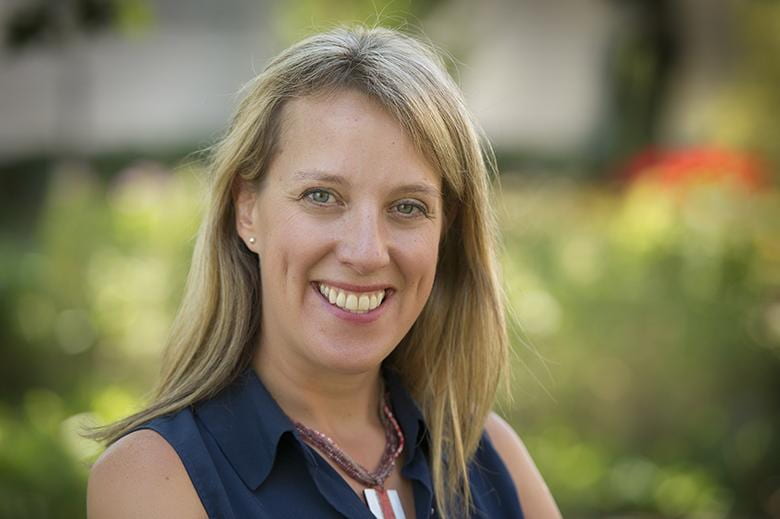
Professor | Canada Research Chair in Environmental Microbiology of Agro-ecosystems | Co-Executive Director, Soils@Guelph | Environmental Sciences | Ontario Agricultural College
Research interests: The relationship between genetic diversity of soil microbial communities and soil ecosystem functioning; the impact of agricultural and environmental practices on soil microbial communities and microbially mediated soil processes; environmental microbiology, soil microbiology, bioremediation, applied soil ecology, molecular microbial ecology.
Faculty profile: ses.uoguelph.ca/people/kari-dunfield
One Health faculty interview with Dr. Kari Dunfield: Science in the Soil
Humans have a complex relationship with microbes, and it turns out that the soil does too.
Understanding how soil microbes work is essential to addressing global issues such as food security and climate change. A research team led by Dr. Kari Dunfield at the Ontario Agricultural College is quantifying microbial processes in the soil to predict when and how they will affect the environment.
“The world is interested in reducing agricultural inputs and creating healthier soil systems.” says Dunfield.
Soil microbes play an essential role in maintaining plant and soil health. The agricultural industry heavily relies on chemical inputs of nutrients and pesticides for plant growth. One key focus of Dunfield and her team is examining the impact of factors such as sustainable farming practices on microbial processes critical to agriculture. Dunfield hopes that the results from this project will help farmers optimize crop yields, while reducing their dependence on chemicals, therefore, minimizing their impact on humans, animals, and the environment.
Dunfield is also studying climate smart agricultural practices that store soil organic matter and decrease key greenhouse gas emissions such as nitrous oxide as a byproduct.
More recently, Dunfield and her team have been collaborating with experts in engineering and animal health to investigate the broader role that microbes play in environmental health. Some of their efforts include examining the potential of microbes to bioremediate oil spills, characterizing the soil microbiome in regenerative grazed pastures, and evaluating the effects of microplastic on the soil ecosystem.
She also describes how One Health has helped her research.
“One Health has allowed me to really tackle more than one question at a time.” says Dunfield. “Being able to work with motivated students and experts from the animal and wildlife side has been great.”
Dunfield’s research is funded by her CRC position, NSERC, and the Food from Thought research program.
_______________________________________________________________________
2022. Authored by Henry Ngo, Collaborative Specialization in One Health.
Animesh Dutta

Professor | Associate Director (Graduate Studies) | Engineering | College of Engineering and Physical Sciences
Research interests: Thermochemical conservation of agri-residue and bio-mass for energy, renewable and cleaner energy, water gasification for energy, assessment of advanced energy systems, thermodynamic optimization & lifecycle analysis.
Faculty profile: www.uoguelph.ca/engineering/content/faculty/animesh-dutta
Tuğçe Ellialtı-Köse
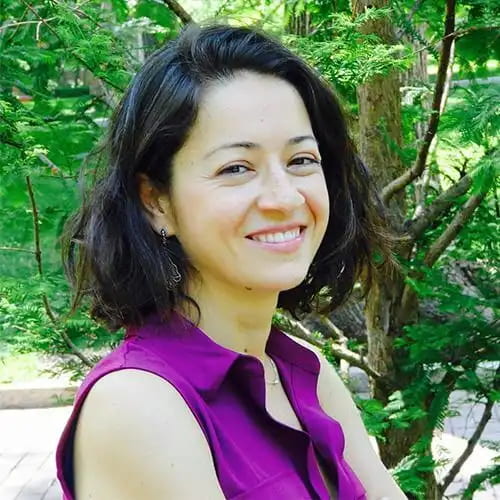
Assistant Professor | Sociology & Anthropology | College of Social and Applied Human Sciences
Research interests: Law and society; gender, law, and social justice; law, medicine, and science, especially in criminal justice responses to gender-based and sexual violence; feminism and feminist theory, institutional ethnography; research methods.
Faculty profile: https://socioanthro.uoguelph.ca/people/tugce-ellialti-kose
Ming Z. Fan

Professor | Animal Biosciences | Ontario Agricultural College
Research interests: Understanding how nutrients affect physiological functions, wellbeing and health, using biotechnologies and genomics tools to understand how the environment is impacted by animal production, gastrointestinal physiology, nutrition and metabolism in pigs.
Faculty profile: animalbiosciences.uoguelph.ca/abscpeople/mfan
Laura Favetta

Assistant Professor | Biomedical Sciences | Ontario Veterinary College
Research interests: Effects of Endocrine Disrupting Compounds (EDCs) and toxicants on gene expression and molecular mechanisms regulating early embryonic development; effect of CNV of genes on the Y-chromosome in relation to disease and fertility; reproductive toxicology in the bovine model with large translational potential on humans and other mammals
Faculty profile: https://ovc.uoguelph.ca/biomedical-sciences/people/faculty/laura-favetta/
Zeny Feng

Professor | Mathematics & Statistics | College of Engineering and Physical Sciences
Research interests: My research lab is working on a broad range of projects but share a common theme on the development of statistical and computational tools or strategies for analyzing diverse type of data arising from different studies and addressing issues arising from these data analyses . Specifically, my research interests covers statistical genetics, bioinformatics, microbiome data analysis, infectious disease modelling, and environmental health. We are interested in applying statistical and computational tools to analyze data from different studies.
Faculty profile: https://mathstat.uoguelph.ca/people/feng
One Health faculty interview with Dr. Zeny Feng: Developing Computational Tools
Issues arising in data analyses due to missing data and varying data types are common problems in a wide variety of research topics. Dr. Zeny Feng of the Department of Mathematics and Statistics at the University of Guelph, along with her research team, works on a broad range of projects to develop statistical and computational tools or strategies for analyzing diverse types of data and that address issues arising from these data analyses. Pictured below is the graphica abstract for a paper by Dr. Feng, collaborating with Dr. McMillan, and Dr. Deeth, from the U of Guelph Department of Mathematics and Statistics, and Dr. Arciszewski, from Alberta Environment and Parks.
Just a few of the projects worked on in Dr. Feng’s research lab include, analyzing environmental indicators and their impact on aquatic and agricultural systems, analyzing impacts on human and honeybee microbiomes, and statistical infectious disease modeling. Many of these have implications for animal, ecosystem, and human health. Building new statistical and computational tools to deal with common issues in data analytics, contributes greatly to One Health research which works within a wide variety of data types and requires many analytical tools. Further developing computational strategies for analyzing the diverse data found in One Health has direct impacts on the data used in research that betters animal, ecosystem, and human health.
Dr. Feng collaborated with many researchers from other departments at the University of Guelph, even before becoming an affiliate faculty member of the One Health Institute. However, she believes becoming an affiliate faculty member has increased her exposure to other collaboration opportunities in the future. A challenge that Dr. Feng’s research looks to overcome is a common problem in many One Health research that uses data analytics, is underreported cases and/or missing data. Dr. Feng has been able to overcome both of these challenges in her research using different computational tools she has developed.
__________________________________________________________________________
2023. Authored by Rhiannon Loster, Collaborative Specialization in One Health
Elizabeth Finnis

Professor | Sociology and Anthropology | College of Social and Applied Human Sciences
Research interests: Smaller-scale farming, local food systems, agricultural and dietary transitions, food sovereignty, political ecology, qualitative methods, Canada, India, and Paraguay.
Faculty profile: socioanthro.uoguelph.ca/people/elizabeth-finnis-0
One Health faculty research summary for Dr. Elizabeth Finnis: Place-based
Small-scale farmers can experience more barriers to resource access and support than larger agricultural operations. Dr. Elizabeth Finnis of the College of Social and Applied Human Sciences seeks to understand the social and cultural values that shape resiliency and decision making among small-scale farmers when they are faced with environmental and economic factors beyond their immediate control.
_________________________________________________________________________
2021. Authored by Tyler Black, Collaborative Specialization in One Health.
Lianne Foti
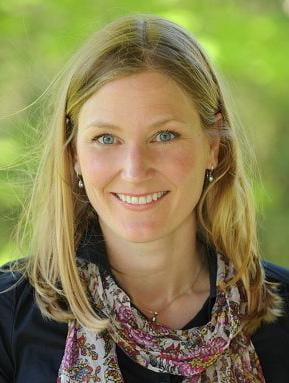
Associate Professor | Management and Hospitality, Food and Tourism Management | Gordon S. Lang School of Business and Economics
Research interests: Consumer behaviour, ethical decision making, international marketing, social marketing.
Faculty profile: uoguelph.ca/lang/people/lianne-foti
Karine Gagné

Assistant Professor | Sociology and Anthropology | College of Social and Applied Human Sciences
Research interests: Climate change, ethics of care, human-animal relations, environment and infrastructure, citizenship, environmental knowledge.
Faculty profile: socioanthro.uoguelph.ca/people/karine-gagné
One Health faculty research summary for Dr. Karine Gagné: Community Based
A multidisciplinary research approach is applied in studying the social and political effects of a shift towards “expert citizenship” as a means to address the consequences of climate change for the humans, animals, and the environment in the regions of Ladakh and Zanskar in the Indian Himalayas. With a focus on climate change and its effects on glaciers and snowfall precipitations, Dr Karine Gagné, an Assistant Professor in the Department of Sociology and Anthropology, University of Guelph, uses her anthroplogy background to explore through ethnographic research how citizens use their own expertise to address the consequences of climate change and abandonment by the state.
_________________________________________________________________________
2021. Authored by Cyril Akwo, Collaborative Specialization in One Health.
Jennifer Geddes-McAlister

Associate Professor | Canada Research Chair | Director, Bioinformatics Graduate Program | Molecular and Cellular Biology | College of Biological Science
Research interests: Host-pathogen interactions; Fungal disease; Antifungal resistance; Mass spectrometry-based proteomics; Global food security and health; Systems biology; Bioinformatics
Faculty profile: uoguelph.ca/mcb/people/dr-jennifer-geddes-mcalister
One Health faculty interview with Dr. Jennifer Geddes-McAlister: Future With Fungus
In a constantly changing world, how do interactions between host and pathogen influence health? Dr. Jennifer Geddes-McAlister and colleagues study how fungal pathogens interact with host cells in changing environments, shedding light on important human, animal, and plant fungal diseases.
Cryptococcus species are ubiquitous in the environment, existing as dried spores that can be inhaled and cause disease in immunocompromised individuals. Another fungal genus, Fusarium, infects cereal grains (for example, wheat, barley and corn), diminishing crop quality and producing mycotoxins that can sicken both humans and livestock when the food product is consumed. Dr. Geddes-McAlister’s research program uses mass spectrometry, proteomics and bioinformatics to describe the multitude of cellular host-pathogen interactions when host and fungal cells are exposed to stressors, like temperature change or coinfection with a bacterial pathogen. With this information, researchers can better understand how virulence factors and host immunity change in response to stress and a fluctuating environment. Ultimately, this work can contribute to improving resilience to disease, advancing clinical treatments, and help elucidate the mechanisms of antifungal resistance.
This One Health approach addresses the challenge of fungal disease by drawing connections across human, animal and environmental aspects of the research program. For example, research findings may impact clinical treatment of humans and animals, while also providing clues on plant health and food security in the face of a changing climate. Additionally, it serves to make results more translatable across multiple disciplines and health sectors. Dr Geddes-McAlister notes that the team’s international collaborations have increased when using this approach, proving that One Health can be both an anchor term and inspiration for new connections.
_________________________________________________________________________
2023. Authored by Alaina MacDonald, Collaborative Specialization in One Health
Daniel Gillis

Professor | Computer Science | College of Engineering and Physical Sciences
Research interests: Ecological and public health risk assessment; Community-engaged software design; Bridging the Digital Divide; and Transdisciplinary Pedagogy.
Faculty profile: uoguelph.ca/computing/people/daniel-gillis
One Health faculty research summary for Dr. Daniel Gillis: Community Based
Dr. Daniel Gillis centers his research around community engagement, using statistical modeling and software design to unravel complex problems. He takes a transdisciplinary approach by working with researchers from multiple disciplines, community members, and Indigenous partners. His team aims to assess risks to public health and to wildlife populations, improve connectivity to Indigenous communities in northern Canada, develop software that meets the needs of their community partners, and strengthen the transdisciplinary approach in higher education.
________________________________________________________________________
2021. Authored by Marlee Pyott, Collaborative Specialization in One Health.
Todd Gillis
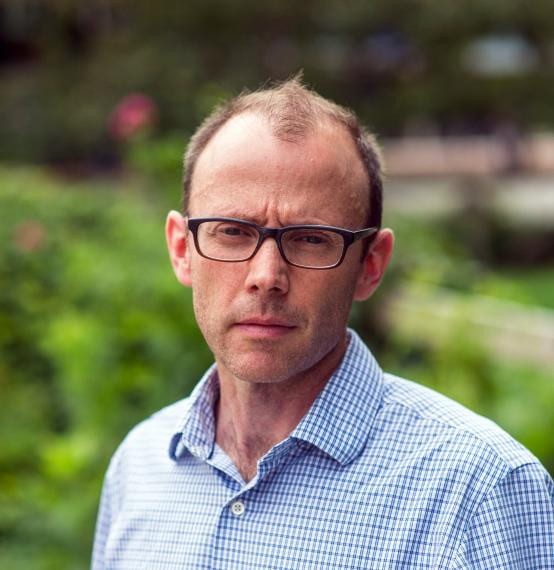
Professor | Integrative Biology | College of Biological Science
Research interests: The cellular mechanisms underpinning cardiac function in vertebrates, the evolution of muscle contrition regulation, the molecular mechanisms underlying the remodelling capacity of the fish heart, bitumen exposure consequences on the development and function of the salmonid heart, hagfish performance during prolonged periods of anoxia.
Faculty profile: uoguelph.ca/ib/gillis
Brandon Gilroyed

Associate Professor | Environmental Sciences | Ontario Agricultural College
Research interests: Renewable energy and biochemical production from agricultural byproducts and wastes; environmental sustainability; livestock mortality management; pathogens in engineered agricultural systems.
Faculty profile: uoguelph.ca/ses/people/brandon-gilroyed
Maya Goldenberg

Professor | Philosophy | College of Arts
Research interests: Philosophy of medicine, philosophy of science, bioethics, women’s health, understanding when knowledge claims are justified in health care, evidence-based medicine, the decision-making framework that relies on clinical trial evidence, vaccine hesitancy.
Faculty profile: uoguelph.ca/arts/philosophy/people/maya-j-goldenberg
Rosario Gómez

Associate Professor | School of Languages and Literatures | College of Arts
Research interests: Spanish / English linguistics, sociolinguistics, English / Spanish phonology, phonetics, romance philology, translation studies, Spanish and English as a second language.
Faculty profile: www.uoguelph.ca/arts/people/rosario-g%C3%B3mez
Minglun Gong

Professor | Computer Science | College of Engineering and Physical Sciences
Research interests: Visual computing; computer graphics, computer vision, visualization, image processing, and pattern recognition.
Faculty profile: uoguelph.ca/computing/people/minglun-gong
Lawrence Goodridge

Professor | Director, Canadian Research Institute for Food Safety (CRIFS) | Graduate Coordinator, Food Safety & Quality Assurance Program | Food Science | Ontario Agricultural College
Research interests: Use of genomics and bacteriophages to control the growth of foodborne pathogens, and to develop rapid tests to detect foodborne and waterborne pathogens with an emphasis on Escherichia coli O157:H7, Salmonella spp, and Listeria monocytogenes, foodborne viruses, and foodborne toxins.
Faculty profile: uoguelph.ca/foodscience/people/lawrence-goodridge
Thomas Graham
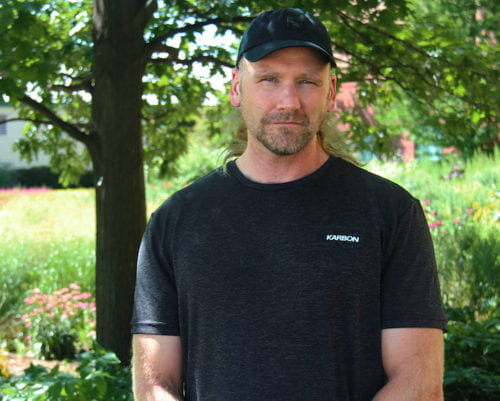
Assistant Professor | PhytoGro Research Chair in Controlled Environment Systems | Environmental Sciences | Ontario Agricultural College
Research interests: All things Controlled Environment Agriculture (CEA) including – Medicinal crop production, food insecurity in urban and northern/remote communities, water treatment technologies, bioregenerative life-support for human space exploration; resource recovery and recycling in vertical farming systems, CEA crop diversification, plant-environment interactions.
Faculty profile: uoguelph.ca/ses/people/thomas-graham
Lauren Grant

Assistant Professor | Population Medicine | Ontario Veterinary College
Research interests: Social and environmental determinants of One Health in animal and human populations; Foodborne diseases; Translational animal diseases; Health equity; Healthcare utilization
Faculty profile: https://ovc.uoguelph.ca/population-medicine/faculty/lauren-grant/
One Health faculty interview with Dr. Lauren Grant: What is the Real Burden of Canine Leptospirosis?
Dr. Lauren Grant and MSc student, Carys Vyn, are investigating social and environmental risk factors for canine leptospirosis. She says, “It is a unique opportunity to consider the risk factors for canine leptospirosis through a One Health perspective.”
Leptospirosis is a true One Health issue because of the strong, direct links between animal health, human health, and environmental health. Leptospira can be transmitted to humans from animals or the environment via direct contact with infected animal urine or through urine- contaminated soil or water. She highlights that “Dogs have a particularly interesting role in transmission because they potentially interact with both wildlife, the environment, and humans.”
Leptospirosis is a climate-sensitive bacterial and zoonotic disease caused by bacteria of the genus, Leptospira, which can infect humans and animals and is found worldwide. In humans, there is a disproportionate burden of disease in low- and middle-income countries. Dr. Grant discusses the importance of investigating the upstream factors and impacts of canine leptospirosis on population health and outcomes. “We can now investigate questions like the cost-benefit of intervening further upstream on certain risk factors, which up until recently was not possible due to the traditional siloed analysis of human, animal and environment health.” Her research team’s investigation aims to link different health data to provide novel social and environmental risk factor information.
A One Health approach has “absolutely changed” the way Dr. Grant conducts research. When asked about how a One Health approach impacts her research, Dr. Grant explains, “It allows me to investigate multiple outcomes of interest, whether that is foodborne diseases or zoonotic diseases or translational health outcomes, because One Health defines a way of thinking about problems that can then be applied to lots of different problems. Having mechanism to link the interdependencies between the health of animals, humans and the environment is exciting!”
Dr. Grant shares how a One Health approach has helped her to overcome barriers of traditional research approach. “As a new faculty member, I am establishing my own niche and to invest time and resources to develop that expertise and establish new lines of independent investigation can be a little daunting.” She goes on to explain that being interested in different areas often challenged the building of her own research program. However, a One Health approach promotes broad, interdisciplinary thinking across a range of exposures and outcomes. “It’s a perfect fit for me as a researcher and helped me to overcome my concerns. One Health promotes diversity of thinking and that is something I hope to continue to reflect in my research program.”
__________________________________________________________________________
2022. Authored by Chloe Carducci, Collaborative Specialization in One Health.
Ryan Gregory

Professor and Department Chair | Integrative Biology | College of Biological Science
Research interests: Genome evolution, DNA quantification methodology, biological diversity, multi-level selection theory, integrative genomics.
Faculty profile: uoguelph.ca/ib/gregory
Marc Habash

Associate Professor | Environmental Sciences | Ontario Agricultural College
Research interests: Water quality, microbial source tracking, waterborne pathogens, microbial biofilms, ecosystem science and biodiversity, plant and environmental health.
Faculty profile: uoguelph.ca/ses/people/marc-habash
One Health faculty research summary for Dr. Marc Habash: Environmental Indicators
Environmental water sources serve as invaluable tools for understanding complex microbial interactions and their consequent health impacts. Dr. Marc Habash of the School of Environmental Sciences studies these complicated environmental systems, including agricultural run-off and more recently wastewater, to detect enteric waterborne pathogens. Through this research, One Health has allowed for an “interactive evaluation” of what is truly happening within these ecosystems, shedding light on possible alternative fecal indicators and the implementation of policy. In addition to providing valuable information of human and environmental health, these indicators can allow for microbial source tracking of animal species such as cows, pigs and other wildlife.
_______________________________________________________________________
2022. Authored by Hailey Davidson, Collaborative Specialization in One Health.
Jess Haines

Associate Professor | Family Relations & Applied Nutrition | College of Social and Applied Human Sciences
Research interests: Child and family health, dietary intake, screen time, sleep, community and family-level behaviour change intervention.
Faculty profile: family.uoguelph.ca/people/jess-haines
Guelph Family Health Study: uelphfamilyhealthstudy.com
Mehrdad Hajibabaei

Associate Professor | Integrative Biology | College of Biological Science
Research interests: Genomics, bioinformatics, environmental DNA (eDNA), phylogenetics, ecological assessment, biodiversity, species identification, microbiome, DNA barcoding.
Faculty profile: https://hajibabaeilab.com/people/
Andrew Hamilton-Wright

Associate Professor | Computer Science | College of Engineering and Physical Sciences
Research interests: Decision support, association mining, machine learning, disease characterization, biological signals, decision confidence, visualization, high-risk decision making, decision exploration.
Faculty profile: uoguelph.ca/computing/people/andrew-hamilton-wright
One Health faculty research summary for Dr. Andrew Hamilton-Wright: Revealing Body Secrets with Computational Models
Imagine a computer program that can effectively diagnose you, your pets and plants. The work of Dr. Andrew Hamilton-Wright and colleagues cross-pollinates concepts from distinct biological disciplines to form computational models that mirror mammalian and plant physiology. Thus far, his research has helped clinicians identify neuromuscular diseases with ease and his machine-learning algorithms are getting us a step closer to unveiling physiological derangements in numerous biological systems.
________________________________________________________________________
2021. Authored by Ziyad Elgamal, Collaborative Specialization in One Health.
Bob Hanner
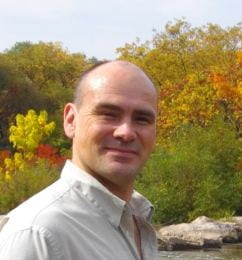
Professor | Integrative Biology | College of Biological Science
Research interests: Molecular biodiversity, molecular ecology, applied biomonitoring using environmental DNA (eDNA), invasive alien species, species-at-risk, animal and plant health, and food fraud.
Faculty profile: uoguelph.ca/ib/hanner
Robert Harkness

Assistant Professor | Molecular and Cellular Biology | College of Biological Science
Research interests: Structural dynamics of biomolecules in human health and disease; proteases in the protein homeostasis network; nucleases involved in the mRNA life cycle; and the dynamics of nucleic acid structures that regulate gene expression.
Faculty profile: www.theharknessgroup.com
Spencer Henson

Professor | Food, Agricultural and Resource Economics | Ontario Agricultural College
Research interests: Economic and social impacts of food-borne disease, especially in developing countries; economics of food safety; evaluation of food safety and animal health capacity-building, especially in developing countries; food safety and the informal sector.
Faculty profile: uoguelph.ca/fare/bios/f_henson.html
Joanne Hewson

Associate Professor | Associate Dean, Students & Academic | Clinical Studies | Ontario Veterinary College
Research interests: Bovine and equine respiratory disorders, communication skills in veterinary medicine, clinical teaching of veterinary medicine and performance assessment, curriculum design and mapping, veterinary community outreach.
Faculty profile: https://ovc.uoguelph.ca/clinical-studies/faculty/joanne-hewson/
Andreas Heyland

Professor | Integrative Biology | College of Biological Science
Research interests: Environmental monitoring in aquatic ecosystems including phytoplankton and zooplankton high-throughput monitoring strategies. Nutrient release from agriculture and aquaculture and its impact on aquatic and terrestrial ecosystems. Harmful algal bloom analysis and mitigation strategies. Next generation water treatment technologies using photosynthetic algae.
Faculty profile: uoguelph.ca/ib/heyland
One Health faculty interview with Dr. Andreas Heyland: Drivers of Algal Blooms
With increasing anthropogenic and climate related impacts, rapid growth of algae or cyanobacteria, otherwise known as harmful algal blooms, is becoming more common in freshwater ecosystems. Dr. Andreas Heyland’s lab in Integrative Biology at the University of Guelph in collaboration with Dr. Hanner’s lab (U of G, Integrative Biology) is investigating the ways in which organisms in these systems process environmental information and the biotic and abiotic interactions that impact algal blooms.
The formation of these algal blooms is driven by specific micro-algal species, that take advantage of nutrient influxes, particularly during summer months when temperatures are higher. Algal blooms can impact the wellbeing of aquatic species as well as any animals that consume water from the lake. Accumulation of toxins in filter feeders like oysters and mussels can lead to economic losses following the closure of shellfish harvesting waters. Finally, blooms can also compromise human health through recreational water exposure and present health challenges to those living near cytotoxin producing blooms.
With so many contributing factors, understanding algal blooms requires an integrated One Health approach. Heyland’s work specifically, particularly targets biotic factors contributing to the microbiome of small recreational lakes in Ontario. These could include nutrient inputs that are often conveyed to the system through runoff. Increasing our understanding of these factors may help identify early markers that may facilitate the growth of algae.
To do this, experiments are conducted from both a physiological perspective and by characterizing biodiversity within the system. Because these ecosystems are relatively understudied in comparison to larger lakes and marine systems, there is a significant amount of work that must be done to characterize the baseline of the system before attempting to understand the effects of algal blooms on animals and the environment. Therefore, the challenge of incorporating all aspects of One Health is also a feature of the work, allowing researchers to acknowledge the complexity of the system rather than isolating one axis.
________________________________________________________________________
2024. Authored by Carly Dinga, Collaborative Specialization in One Health
Carmen Jacqueline Ho

Assistant Professor | Political Science | College of Social and Applied Human Sciences
Research Interests: Welfare state, social policies, bureaucratic politics, health politics and policy, maternal and child nutrition.
Faculty profile: polisci.uoguelph.ca/people/carmen-jacqueline-ho
One Health faculty research summary for Dr. Carmen Ho: Exploring Policy
Governments play an important role in shaping human health due to their influence in social and political environments. Through a case study on micronutrient malnutrition in Indonesia, Dr. Carmen Ho of the Department of Political Science investigated what motivates governments to implement “benevolent policies.”
________________________________________________________________________
2021. Authored by Grace Nichol, Collaborative Specialization in One Health.
Mervyn Horgan

Associate Professor | Sociology Graduate Program Coordinator | Sociology and Anthropology | College of Social and Applied Human Sciences
Research interests: Cities; Public Spaces; Social Theory; Social Interaction; Pet-facilitated Interaction; Housing; Solidarity; Stigmatization; Sociability
Faculty profile: socioanthro.uoguelph.ca/people/mervyn-horgan-0
Sally Humphries

Professor Emerita | Sociology and Anthropology | College of Social and Applied Human Sciences
Research interests: Sustainable rural livelihoods; agroecology and small farmer engagement; collaborative evaluation of impacts from participatory research and plant breeding in Honduras; collaborative research on gender equity and youth programming in rural areas of Honduras.
Faculty profile: experts.uoguelph.ca/sally-humphries
One Health faculty research summary for Dr. Sally Humphries: Rural Empowerment
Implementing sustainable agricultural practices is particularly important for improving food security and farmer livelihoods in the rural Honduran hillsides. Nearly 30 years of a participatory research program, initiated by Dr. Sally Humphries, has resulted in farmers learning how to maximize the productivity of their land and improve soil health, while it has also enriched gender equality by empowering women and youth to be involved in decision-making processes. True to the One Health approach, this one-of-a-kind research program has been driven by Honduran farmers, agronomists, and scientists, in a way that has mutually benefitted them all.
2022. Authored by Carrie McMullen, Collaborative Specialization in One Health.
Brian Husband
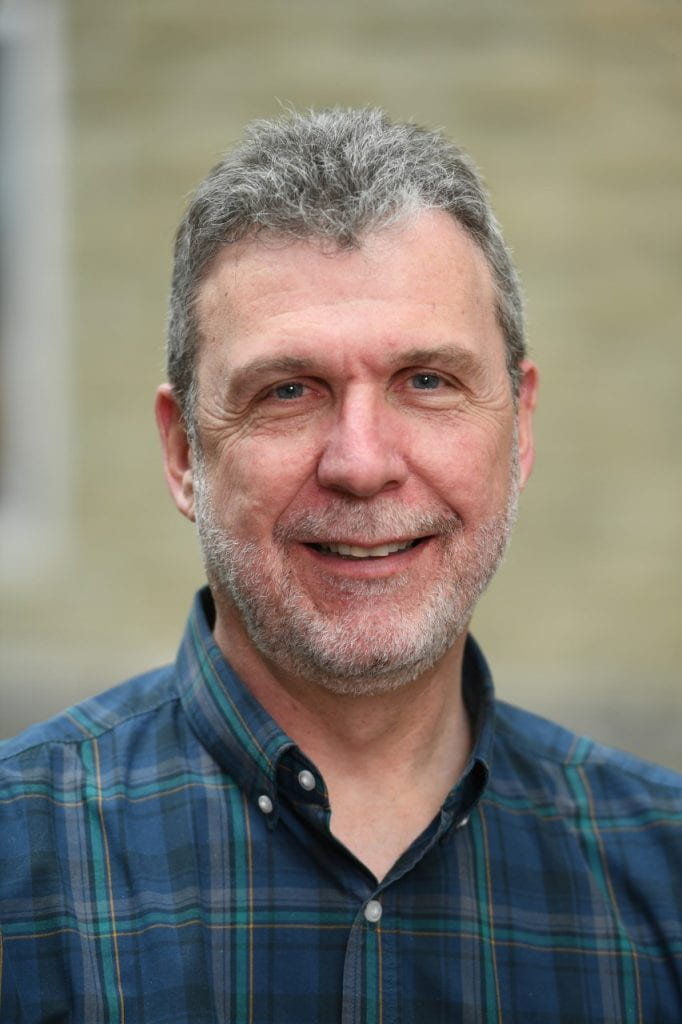
Professor | Integrative Biology | College of Biological Science
Research interests: Investigation of biodiversity science, conservation, and ecological sustainability of food production, through studies of the ecology, genetics, and reproductive biology of wild and domesticated plant populations.
Faculty profile: uoguelph.ca/ib/husband
Kris Inwood

Professor | Economics and Finance | Gordon S. Lang School of Business and Economics
Professor | History | College of Arts
Research interests: Economic history & economic development. Applications: long-term change, origins of health inequality and physical well-being, aboriginal demography, industrialization.
Faculty profile: uoguelph.ca/lang/people/kris-inwood
Fiona James
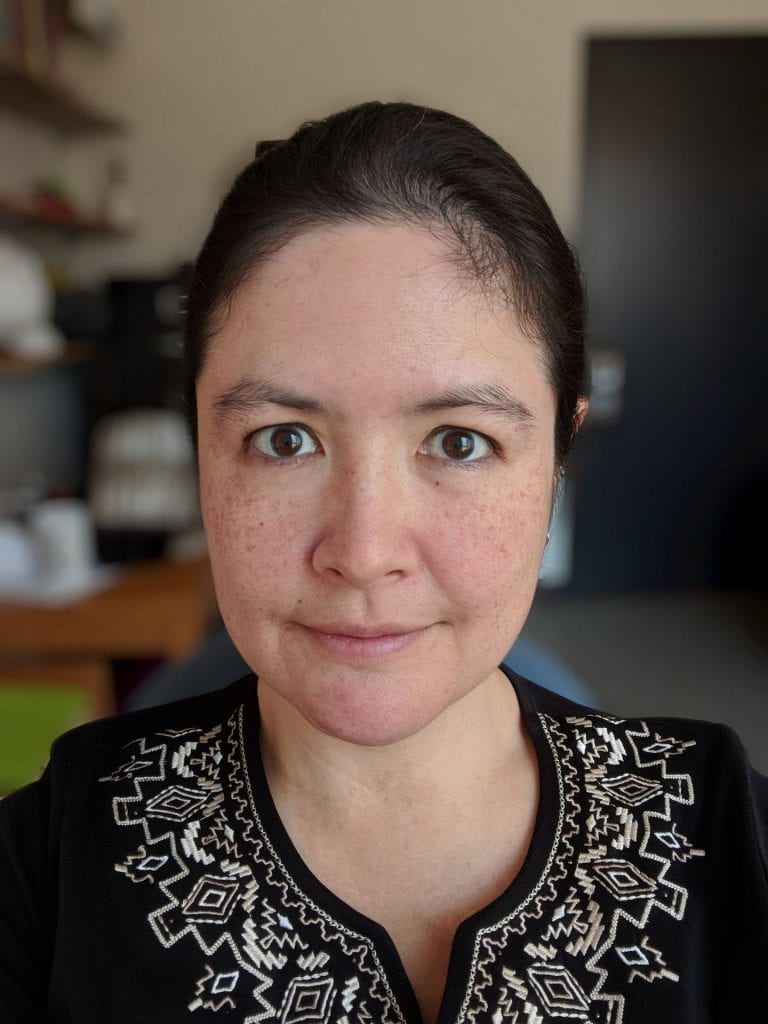
Professor | Clinical Studies | Ontario Veterinary College
Research interests: Neurological disorders, comparative epilepsy, EEG, veterinary neurology.
Faculty profile: https://ovc.uoguelph.ca/clinical-studies/faculty/fiona-james/
Claire Jardine

Associate Professor | Regional Director of CWHC ON/NU | Pathobiology | Ontario Veterinary College
Research interests: Wildlife and ecosystem health, ecology of diseases in wild animal populations, rodent and vector borne diseases.
Faculty profile: https://ovc.uoguelph.ca/pathobiology/people/faculty/claire-jardine/
One Health faculty interview with Dr. Claire Jardine: Wildlife Health Pioneers
As the regional director of the Canadian Wildlife Health Cooperative (CWHC) for Ontario and Nunavut, Dr. Claire Jardine, an Associate Professor in Pathobiology, investigates patterns and impacts of wildlife diseases through their national wildlife health surveillance program. Their interdisciplinary team utilizes a One Health approach to collect important baseline disease information, which allows them to identify new and emerging health issues in wildlife and determine threats for human and domestic animal health.
For example, when highly pathogenic avian influenza was first discovered in a Red-tailed Hawk in Ontario, poultry producers and veterinary practitioners were informed of the nearby risk, which allowed them to take additional precautions to protect the health of their livestock. Additionally, wildlife surveillance information on West Nile virus, a mosquito-borne disease, is shared with local public health units to inform risks for humans. Conducting passive and targeted surveillance across Canada allows the CWHC to investigate potential environmental drivers of disease, and how changes in affected populations impacts surrounding ecosystems.
One of the challenges that comes with working with an interdisciplinary team is understanding the different research approaches and terminology that are unique to various academic and government backgrounds. What helps overcome this is by investing time at the beginning of the project to build a supportive and communicative team environment, which allows collaborators to learn from one another, and set clear goals that are understood by
everyone on the team. Having a collaborative, interdisciplinary team ensures that the CWHC is using the best techniques for their projects, and it allows them to consider the broader effects on animals, humans, and the environment, thus improving the quality and impact of their work.
By performing Canada-wide surveillance, Dr. Jardine’s work with the CWHC contributes to important information that is used to help evaluate and improve local, provincial, and national policies. Using a One Health approach to disease surveillance allows the CWHC to recognize important impacts on wildlife health at the human-animal-environment interface, which contributes to a greater understanding of disease dynamics and risks for other species
________________________________________________________________________
2023. Authored by Carys Vyn, Collaborative Specialization in One Health
Candace Johnson

Professor | Political Science | College of Social and Applied Human Sciences
Research interests: Maternal health, reproductive rights, women and gender and politics, human rights and justice, Latin America.
Faculty profile: polisci.uoguelph.ca/people/candace-johnson
One Health faculty interview with Dr. Candace Johnson: Collaborative Health Solutions
Dr. Candace Johnson is a political scientist at the University of Guelph investigating reproductive rights in North America following the overturning of Roe vs. Wade in 2022. Her research aims to investigate reproductive justice at the Canada-United States and United States-Mexico borders, analyzing how knowledge and misinformation impacts reproductive freedom in these countries.
Dr. Johnson employs a One Health approach in many of her projects, emphasizing transdisciplinary collaboration and community engagement. As a political scientist, she uses her social science knowledge in collaborative, transnational initiatives that address all three pillars of One Health. A notable example of this is her work on a project that explored the political, social, and gender implications of the Zika virus. Big theoretical questions and connecting different, and sometimes opposite, areas of knowledge are the core of Dr. Johnson’s research, and, to advance these large-scale projects, she consistently utilizes interdisciplinary collaboration.
The One Health approach encourages transdisciplinary research, enhancing dialogue between researchers and ultimately creating a comprehensive understanding of the research problem. Utilizing a transdisciplinary approach broadens the impact of Dr. Johnson’s research, allowing findings to inform policies that address reproductive rights while considering the needs of the community. The collaborative nature of the One Health approach has streamlined the research process for Dr. Johnson, facilitating partnerships with various disciplines that enhance the quality and scope of her studies.
A challenge that Dr. Johnson has faced in One Health research is the need to recognize and incorporate more social scientists in this field. Insights from social scientists are crucial for understanding the complex social, cultural, and behavioral factors that influence health outcomes.
_________________________________________________________________________
2024. Authored by Breanne Murray, Collaborative Specialization in One Health
Craig Johnson

Professor | Political Science | College of Social and Applied Human Sciences
Research interests: Environmental governance, climate change, urbanization, poverty, renewable energy, Asia, Latin America.
Faculty profile: polisci.uoguelph.ca/people/craig-johnson
Andria Jones

Professor | Population Medicine | Ontario Veterinary College
Research interests: Epidemiology of mental health and resilience in the veterinary and agricultural sectors, with a mixed methods (quantitative and qualitative) research approach.
Faculty profile: https://ovc.uoguelph.ca/population-medicine/faculty/andria-jones/
Nina Jones
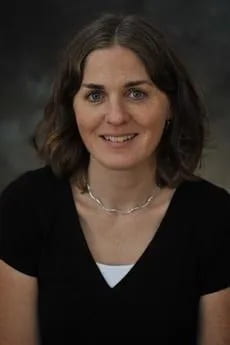
Professor | Canada Research Chair | Molecular and Cellular Biology | College of Biological Science
Research interests: Cell signaling events in mammalian development and disease including cancer, kidney disease and neurological disorders.
Faculty profile: https://www.uoguelph.ca/mcb/people/dr-nina-jones
Vinay Kanetkar

Associate Professor | Graduate Coordinator | Marketing and Consumer Studies | Gordon S. Lang School of Business and Economics
Research interests: Market response models, forecasting, market research, conjoint analysis, marketing channels and pricing, managing and measuring price, responsiveness, marketing and operations, management interface.
Faculty profile: uoguelph.ca/lang/research-topics/econometrics
Niel Karrow

Professor | Animal Biosciences | Ontario Agricultural College
Research interests: My research interests focus on innate immunoregulation, immunotoxicology and immunogenetics. This includes identifying genetic markers associated with inflammatory diseases, assessing the effects of maternal inflammatory stress on the developing fetal neuroendocrine-immune system, assessing efficacy of immunoceuticals, and characterising the immunotoxicity of microbial toxins. I believe that diversity and inclusion in the classroom and laboratory foster creativity and global understanding. Thus, I am committed to providing an engaging learning environment that promotes these ideals, where all students are provided equal opportunity regardless of their race, ethnicity, gender, age, religion, language, abilities/disabilities, socioeconomic status, or country of origin.
Faculty profile: animalbiosciences.uoguelph.ca/abscpeople/nkarrow
Satsuki Kawano

Professor | One Health Collaborative Specialization Faculty | Sociology and Anthropology | College of Social and Applied Human Sciences
Research interests: Disability, well-being, mind-body integration, identity and personhood, ritual and performance, space and place, cross-cultural perspectives on human development, aging, and life course, and accommodations for students with learning and developmental disabilities in Japanese schools.
Faculty profile: socioanthro.uoguelph.ca/people/satsuki-kawano
David Kelton

Professor Emeritus | Population Medicine | Ontario Veterinary College
Research interests: Control of infectious and metabolic diseases of dairy cattle, especially Johne’s Disease, bovine mastitis and bovine lameness, and the prudent use of antibiotics in cattle as part of an overall strategy to decrease the risk of AMR.
Faculty profile: ovc.uoguelph.ca/population-medicine/faculty/david-kelton
Thomas Koch

Associate Professor | Biomedical Sciences | Ontario Veterinary College
Research interests: Stem cell and tissue engineering-based therapies, joint cartilage, joint homeostasis, regenerative medicine, translation of novel therapies to human medicine.
Faculty profile: https://ovc.uoguelph.ca/biomedical-sciences/people/faculty/thomas-g-koch/
Edward Koning

Associate Professor | Political Science | College of Social and Applied Human Sciences
Research interests: The politics of immigration, specifically in North West Europe and North America; the politics of immigrants’ social rights and the role of populist anti-immigrant parties; social policy; institutionalism.
Faculty profile: polisci.uoguelph.ca/people/edward-koning
One Health faculty interview with Dr. Edward Koning: Immigration in One Health
Dr. Edward A. Koning is an associate professor in the Department of Political Science at the University of Guelph and is a One Health affiliated faculty member. He interfaces with the One Health Institute by attending One Health seminars and by being open to new students that want to take a One Health approach in their own research. Besides obtaining his PhD from Queen’s University in Political Studies, he is also an author of several books which include Immigration and the Politics of Welfare Exclusion: Selective Solidarity in Western Democracies (2019) and The Exclusion of Immigrants from Welfare Programs: Cross-National Analysis and Contemporary Developments (2022).
To Dr. Koning, One Health is defined by its ideas of interdisciplinarity and collaboration, and the environment it creates for academics that fosters new ideas and approaches to complex issues. Despite this environment, Dr. Koning believes that there are still barriers in the field of political science for collaboration. For example, there are many political science journals that could reject research that is too broad, but he is hopeful that is changing as more and more interdisciplinary journals are founded.
Dr. Koning’s own research prioritizes two major fields in the politics of immigration. The first is the complex interactions and dynamics involved in the access to benefits for immigrants. The second involves understanding populist anti-immigrant politics and investigating the facts about welfare chauvinism. Ultimately, his research seeks to cultivate healthy public debate, and to discover a deeper understanding of the complex political machinery that governs these issues.
In the context of One Health, his research primarily focuses on the pillars of human and environmental health. Immigrants access to social programs—including healthcare, is a major determinant of health both physically and mentally. Additionally, a political mainstream that prioritizes populist anti-immigrant politicians and their policies, or a mainstream that supports welfare chauvinism, can negatively impact the social environments that immigrants or minorities live in and thus can expose them to greater health risks. Furthermore, the impacts of institutional racism and in-group/out-group dynamics during the COVID-19 pandemic highlighted key areas of improvement in immigration policies that shaped both the social environment, and human health.
Dr. Koning states that a challenge for him in One Health is that it can be difficult to understand others due to disciplinary differences, that when two disciplines come together, it can be like “speaking another language”. Over time he hopes that as One Health becomes more common, that these disciplinary differences may become less of a barrier to communication and collaboration efforts.
_________________________________________________________________________
2022. Authored by Daniel Blizzard, Collaborative Specialization in One Health.
Jonathan LaMarre

Professor | Biomedical Sciences | Ontario Veterinary College
Research interests: The biology of small RNAs and their associated pathways in reproduction, neurobiology and cancer in multiple species. RNAs as biomarkers of fertility and development.
Faculty profile: ovc.uoguelph.ca/biomedical-sciences/people/faculty/Jonathan-LaMarre
Gisèle LaPointe

Professor | NSERC/Dairy Farmers of Ontario Dairy Alliance | Food Science | Ontario Agricultural College
Research interests: Dairy microbiology from production through processing and digestion. How feed, food, foodborne pathogens and probiotics interact and influence the composition and activity of the gut microbiota leading to potential health benefits or health risks.
Faculty profile: uoguelph.ca/foodscience/people/gisèle-lapointe
Anna T. Lawniczak

Professor | Mathematics and Statistics | College of Engineering and Physical Sciences
Research interests: Mathematical modelling, simulation, & analysis of dynamics of complex natural, engineering & social systems, individually based simulation models, multi-agent-based simulations, cognitive agents, statistical analysis of simulation data, artificial intelligence, computational intelligence, spread of epidemics and vaccination strategies.
Faculty profile: mathstat.uoguelph.ca/people/lawniczak
Stephen LeBlanc
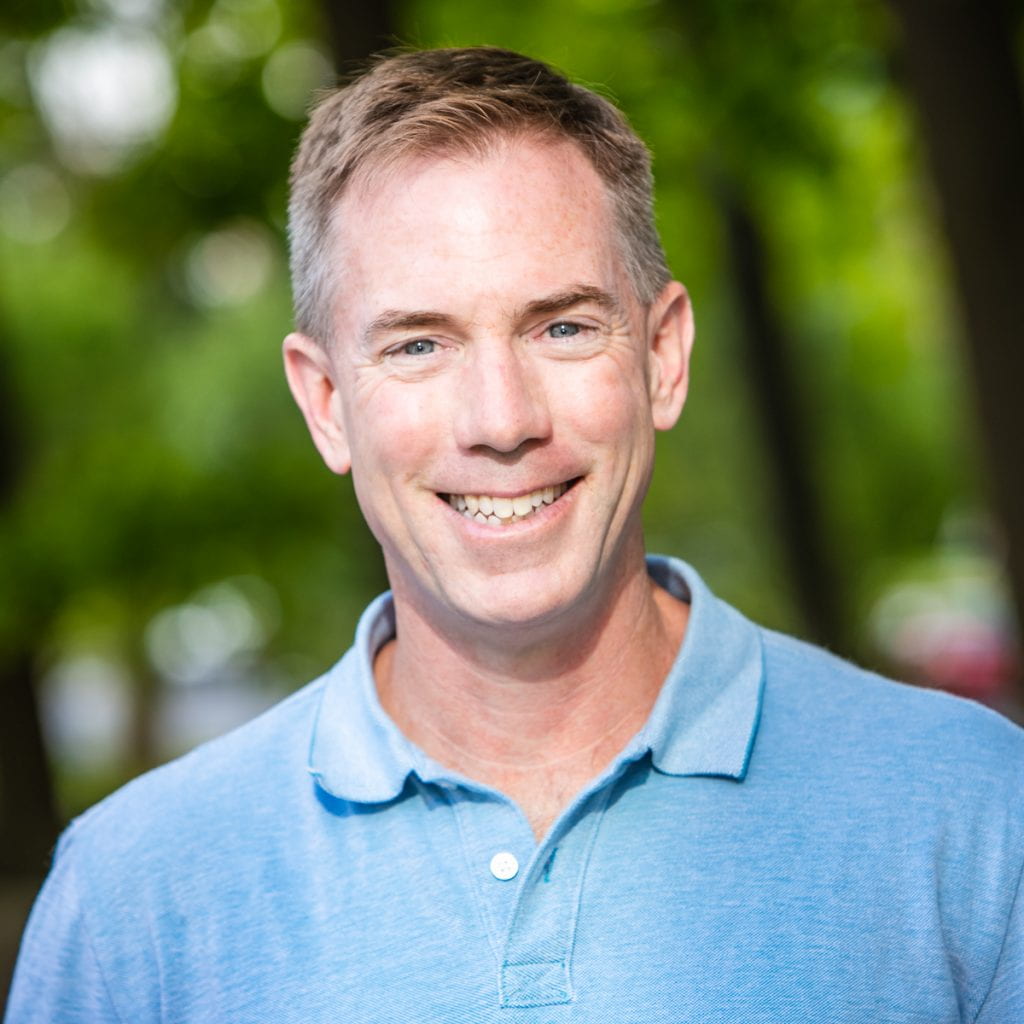
Professor | Population Medicine | Ontario Veterinary College
Research interests: Promotion of health, fertility, and productivity in dairy cattle, antimicrobial stewardship in dairy farming and veterinary practice, evidence-based veterinary medicine, and applied epidemiology.
Faculty profile: https://ovc.uoguelph.ca/population-medicine/faculty/stephen-leblanc/
Leah Levac

Associate Professor | Political Science | College of Social and Applied Human Sciences
Research interests: intersectionality and public participation, northern wellbeing, local politics, critical community-engaged scholarship.
Faculty Profile: polisci.uoguelph.ca/people/leah-levac
One Health faculty research summary for Dr. Leah Levac: Enhancing Well-being
The well-being of diverse women in northern communities in present-day Canada is shaped and influenced by many factors. Dr. Leah Levac collaborates with community organizations, Indigenous and northern women, and other academic partners to practice transdisciplinarity, including by using community-engaged learning and tools, theories, and ideas from within and beyond disciplines. Through their work, they aim to better understand the factors shaping diverse women’s experiences and develop appropriate strategies for enhancing well-being.
________________________________________________________________________
2021. Authored by Radhika Gandhi, Collaborative Specialization in One Health.
Jana Levison

Associate Professor | Engineering | College of Engineering and Physical Sciences
Research interests: Agricultural impacts on groundwater quality and quantity, impacts of climate change on hydrological systems, groundwater flow and contaminant transport in fractured geologic media, source water protection for Indigenous and rural communities.
Faculty profile: uoguelph.ca/engineering/content/faculty/jana-levison
One Health faculty interview with Dr. Jana Levison: Groundwater Health
Although harder to see than the surface water, like lakes and streams, that Canadians are used to, groundwater is an important source of water for consumption in rural areas, farming, and industrial uses. Dr. Jana Levison, an associate professor in water resources engineering, is concerned with the quality and quantity of groundwater and conducts research on the impacts of agriculture and climate change.
Monitoring groundwater provides important information for human health, especially for people who use well water that pulls directly from groundwater. With no municipal treatment of water, households can unknowingly consume contaminated water. Excess nutrients and pollutants in groundwater can also impact delicate ecosystems that rely on groundwater fed water sources and make animals that drink the water sick.
“I focus on groundwater but thinking about the entire water cycle is very important because groundwater flows along and then eventually discharges to streams and tributaries or on a deeper scale, directly into the Great Lakes… it’s really all connected.”
Also important is the monitoring of groundwater quantity; as climate change continues and population growth puts pressure on our natural resources, water scarcity may become a more critical issue for people, animals, and ecosystems that rely on our current abundance of natural water sources.
For Dr. Levison, using a One Health approach helps to put together the larger picture of what’s going on with our groundwater.
“Working at those intersections of different disciplines really helps with problem solving and coming up with unique approaches.”
Linking the technical side of her research to other disciplines helps to get a better view on how it impacts areas outside her specialty and pushes her to think outside the box. A memorable example for Dr. Levison was working out how to scale water quantity data down for collaboration on a project about salamander population modelling. Through partnerships with biologists, ecologists, and veterinarians she’s been a part of several multidisciplinary projects that highlight how important groundwater is to our environment, our food, and our health.
_________________________________________________________________________
2022. Authored by Laura Zehr, Collaborative Specialization in One Health.
Diana Lewis

Assistant Professor | Geography, Environment & Geomatics | College of Social and Applied Human Sciences
Research interests: fostering a wider understanding of Indigenous worldviews, and how Indigenous worldviews must inform environmental decisions, specifically as Indigenous peoples are impacted by resource or industrial development.
Faculty profile: geg.uoguelph.ca/faculty/lewis-diana
Julang Li

Professor | Animal Biosciences | Ontario Agricultural College
Research interests: Fertility and ovarian function, bioactive peptide production, antibiotic alternatives; physiology and mechanisms of ovarian follicular development.
Faculty profile: animalbiosciences.uoguelph.ca/abscpeople/jli
Loong-Tak Lim

Professor | Food Science | Ontario Agricultural College
Research interests: Food packaging, electrospinning/electrospraying, encapsulation, biopolymer film/coating, coffee technology, injection moulding, and package prototyping.
Faculty profile: uoguelph.ca/foodscience/people/loong-tak-lim
Mark Lipton
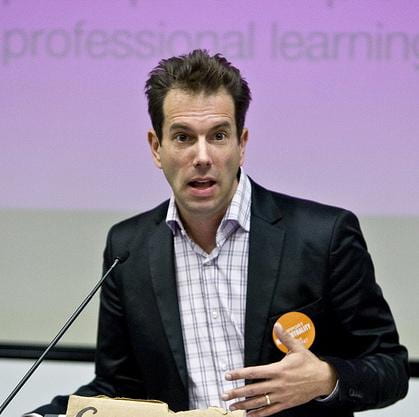
Professor | English and Theatre Studies | College of Arts
Research interests: Science communication, communication and media, art/sci collaborations, media education, health and wellness.
Faculty profile: uoguelph.ca/arts/sets/people/mark-lipton
Philip A. Loring

Adjunct Faculty | Geography, Environment and Geomatics | College of Social and Applied Human Sciences, and Global Director of Human Dimensions Science, The Nature Conservancy
Research interests: Food systems and security, community ecology, natural resource conflict, human ecology, and well-being.
Faculty profile: geg.uoguelph.ca/faculty/loring-philip
Ray Lu

Associate Professor | Graduate Studies Coordinator | Molecular and Cellular Biology | College of Biological Science
Research interests: Unfolded Protein Response and human diseases: cellular proteins involved in animal stress responses, the role of the Unfolded Protein Response in animal development, cell differentiation, Alzheimer’s, diabetes, cancer and viral infection; Molecular mechanisms of aging, using planarians as aging models; gene-knockout mice; virus-cell interaction.
Faculty profile: uoguelph.ca/mcb/people/dr-ray-lu
Brittany Luby

Associate Professor | History | College of Arts
Research interests: Anishinaabe history, Crown-Indigenous relations, industrialization of the subarctic, food sovereignty, community wellbeing, oral research methodologies, land-based learning.
Faculty profile: uoguelph.ca/arts/history/people/brittany-luby
Lewis Lukens
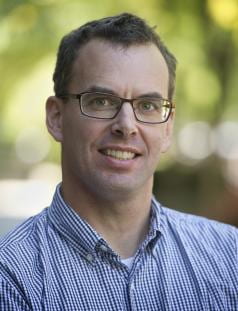
Professor | Department of Plant Agriculture | Ontario Agricultural College
Research interests: Agricultural genetics, agricultural genomics, crop quality and yield improvement, plant breeding, genetics of adaptation, genetic solutions to address agriculture’s environmental impact
Key words: Food safety, food security
Faculty profile: https://www.plant.uoguelph.ca/llukens
David Ma
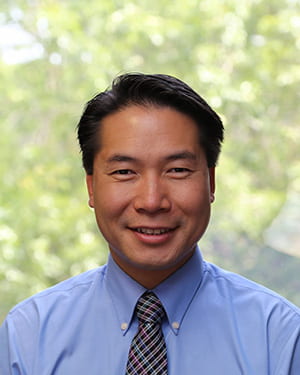
Professor | Human Health and Nutritional Sciences | College of Biological Science
Research interests: The influence of dietary fats on health and prevention of chronic disease throughout the lifecycle. In particular, bioactive fatty acids and their role in metabolism, breast cancer, brain health and childhood obesity prevention. As Director of the Guelph Family Health Study, we are interested in determinants of health, community engaged research and knowledge translation. As the Co-lead and PI of the SMART Training platform, we are focused on training the next generation in implementation science in healthy and smart cities.
Faculty profile: uoguelph.ca/hhns/people/dr-david-wl-ma
Guelph Family Health Study: guelphfamilyhealthstudy.com
SMART training platform: https://smart-training.ca/
Pavneesh Madan
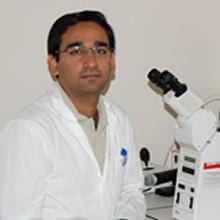
Professor | Biomedical Sciences | Ontario Veterinary College
Research interests: Investigating the factors influencing early embryo arrest, mortality, and survival in embryos produced by reproductive biotechnologies; unravelling the roles of epigenetic and signal transduction pathways in the precise control of early embryo development; embryonic health, and enhancing overall reproductive success.
Faculty profile: ovc.uoguelph.ca/biomedical-sciences/people/faculty/pavneesh-madan
Ferdinando Manna
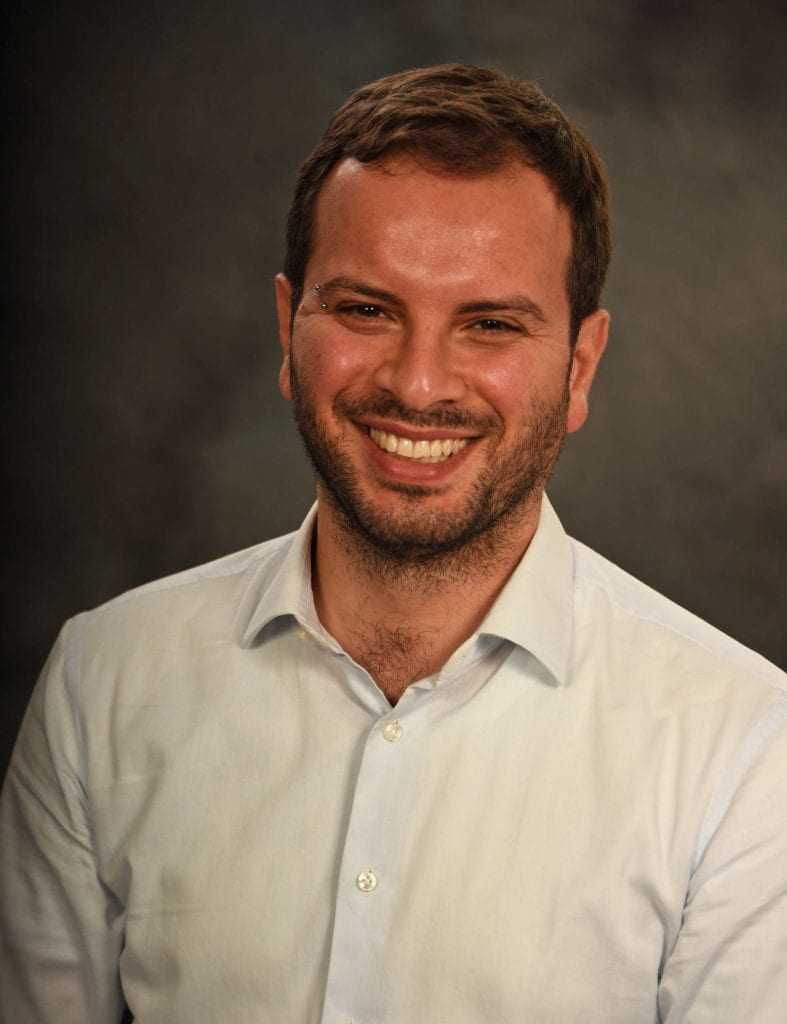
Assistant Professor | Engineering | College of Engineering and Physical Sciences
Research interests: As a hydrogeologist, my research focuses on the analysis and assessment of groundwater recharge, including the study of the hydrological processes occurring across the critical zone from the atmosphere to the water table (precipitation, infiltration, evapotranspiration and flow through the unsaturated zone) in heterogeneous aquifers. My approach includes coupling field research -physical and chemical observations- and numerical modelling at different temporal and spatial scales.
Faculty profile: https://engineering.uoguelph.ca/people/ferdinando-manna-phd
Morwick G360 Groundwater Research Institute: https://g360group.org/our-team/principal-investigators/ferdinando-manna/
Ed McBean

Professor Emeritus | Canada Research Chair in Water Supply Security | Engineering | College of Engineering and Physical Sciences
Research interests: Water supply security, municipal infrastructure integrity, risk assessment and management, statistical analyses of environmental data, solid waste management and landfill design.
Faculty profile: uoguelph.ca/engineering/content/faculty/ed-mcbean
David McCarthy

Professor and Canada Excellence Research Chair (CERC) in Waterborne Pathogens: Surveillance, Prediction and Mitigation | School of Environmental Sciences | Ontario Agricultural College
Research interests: David McCarthy is an environmental engineer focusing on the biosurveillance of pathogens in urban water systems and the development of methodologies to monitor and manage these to protect human health. His research spans health-related water microbiology, risk assessments, pathogen fate and transport, urban hydrology, stormwater management, green water treatment technologies, and novel IoT devices for the monitoring and sampling of water quality. David’s work has significantly impacted industry practices, including the development of novel stormwater treatment systems and real-time monitoring and control technologies for urban water systems.
Faculty Profile: https://ses.uoguelph.ca/people/david-mccarthy
Marta McCarthy

Associate Professor | Fine Art and Music | College of Arts
Research interests: Choral music and social justice, Canadian choral mosaic, gesture as a unique representation of musical thought, choral rehearsing as “giving voice”, music and health.
Faculty Profile: uoguelph.ca/arts/sofam/people/marta-mccarthy
Stuart McCook
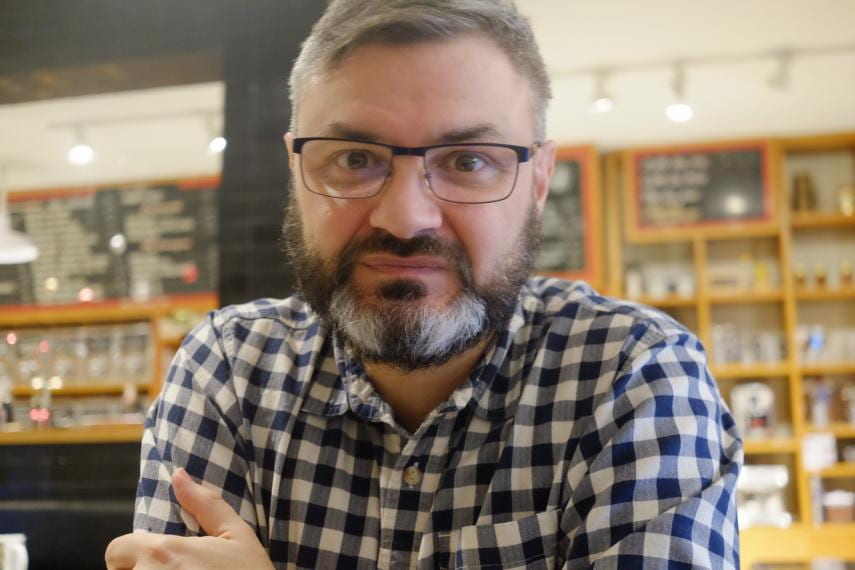
Professor | History | College of Arts
Research interests: History of science, environmental history, Latin America, world history, international development, comparative history, coffee crop diseases, global history, and the history of tropical agriculture.
Faculty profile: uoguelph.ca/arts/history/people/stuart-mccook
Mary Ruth McDonald
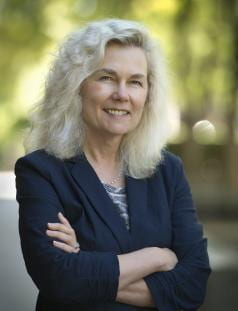
Professor | Plant Agriculture | Ontario Agricultural College
Research interests: Biology and management of crops, plant nutrition, biological control of plant pathogens, disease forecasting and management, management of nematodes on vegetable crops, Fusarium, and management of onion maggot, carrot rust fly and carrot weevil.
Faculty profiles: plant.uoguelph.ca/mrmcdona
Thomas McIlwraith
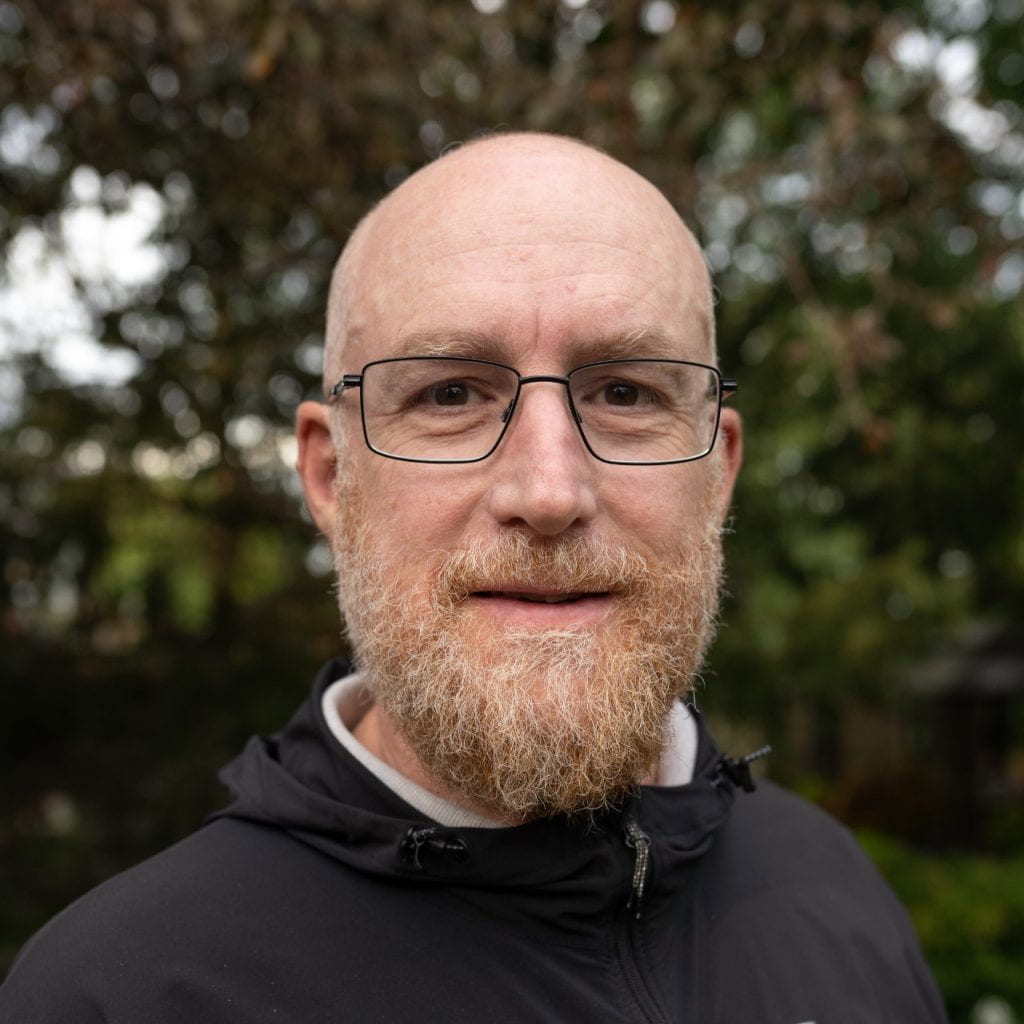
Associate Professor | Sociology and Anthropology | College of Social and Applied Human Sciences
Research interests: Indigenous peoples, western Canada, ethnography, land use, hunting, territoriality, food and resource harvesting practices, contemporary Indigenous land use in the context of mining and logging.
Faculty profile: socioanthro.uoguelph.ca/people/thomas-tad-mcilwraith
C. Meghan McMurtry

Associate Professor | Psychology | College of Social and Applied Human Sciences
Research interests: Child health (pediatric) psychology, pediatric acute and chronic pain, needle fear, procedural pain and fear, parent-child interactions and family influences on children’s pain.
Faculty profile: https://pphc.uoguelph.ca/
Jennifer McWhirter

Associate Professor | Population Medicine | Ontario Veterinary College
Research interests: Health and risk communication, public health competencies, generative AI and public health, built environment and public health, climate change and health, landscape design/architecture and health, design thinking, public health systems.
Faculty profile: https://ovc.uoguelph.ca/population-medicine/faculty/jennifer-mcwhirter/
Faisal Moola
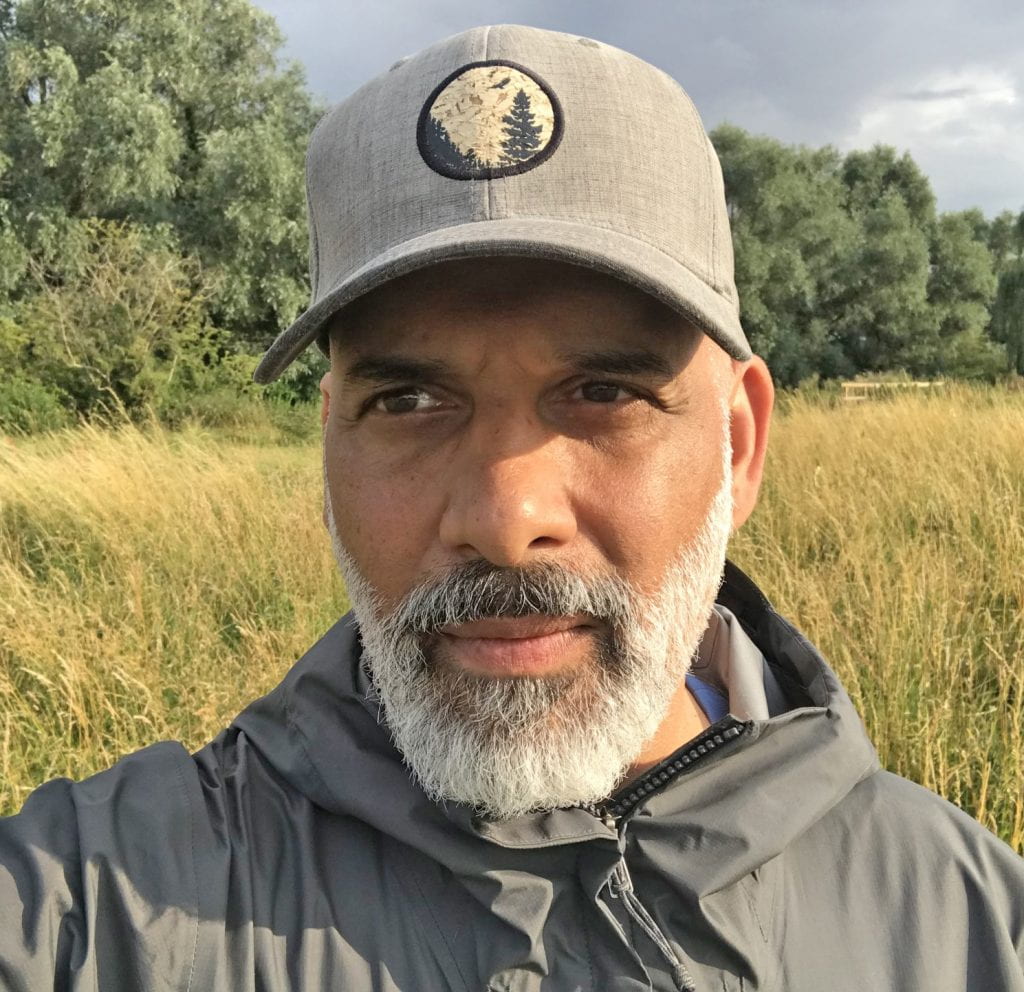
Associate Professor | Geography, Environment and Geomatics | College of Social and Applied Human Sciences
Research interests: Forest conservation and management, Ecology and ethnoecology of plants, Environmental policy Indigenous-led conservation.
Faculty profile: geg.uoguelph.ca/faculty/moola-faisal
One Health faculty interview with Dr. Faisal Moola: People, Plants & Policy
It is widely proven that Indigenous stewardship has supported the sustainable management of traditional lands and resources, but until more recently, conservation approaches have disregarded the social and cultural importance of these protected areas and have exclusively focused on species that are identified as being at risk or in decline by Western science. Recognizing the importance and significance of Indigenous stewardship for the land is critical for implementing lasting conservation strategies, as well as supporting Indigenous land and Treaty rights.
Dr. Faisal Moola’s People, Plants, and Policy (3P) lab, conducts research on the ethnoecology of cultural keystone species (CKS), particularly wild berries, in order to radically reform policy by advancing and supporting new policy mechanisms that are better aligned with Indigenous peoples’ rights and livelihoods. His research uniquely integrates human wellbeing and ecosystem health through ecological stewardship and conservation of the Canadian boreal.
Since Dr. Moola’s research is interested in boreal forest conservation management, forest ecosystems and boreal animal species within these ecosystems, such as woodland caribou (Rangifer tarandus caribou) and black bears (Ursus americanus), are impacted through implemented conservation strategies and policies. In addition, species within these ecosystems are important for providing certain ecosystem services, which ultimately benefit humans, further adding to the interconnectedness of his research.
Dr. Moola works closely with Mi’kmaq peoples and is determined to integrate multiple forms of knowledge through the use of the Two-Eyed Seeing approach (a fundamental tenet of Mi’kmaq knowledge), which leverages both Indigenous and Western knowledge in order to provide a more holistic solution that considers all stakeholders.
Dr. Moola’s lab leverages a One Health approach through incorporating transdisciplinarity. The 3P lab is made up of scholars, students, and Indigenous partners, which allows his research to transcend the traditional barriers created by colonialism between Western science and Indigenous knowledge. While the collaborative nature of his work is an asset, it can also be challenging at times to overcome certain power dynamics that have transpired as a result of colonialism.
When attempting to integrate both ways of seeing in order to influence policy decisions, the evidence provided through Western science methods tends to take precedence, which only reinforces this power dynamic. For instance, access to CKS, as well as their cultural use is in decline, but these species are not considered at-risk through current Western science measures, and therefore not regulated under endangered species law or protective laws.
To overcome this challenge, Dr. Moola is attempting to modify the way our policy mechanisms currently prioritize and accept Western-based metrics as a means of implementing conservation strategies, with policy that recognizes the importance of Indigenous stewardship of the lands and territories.
________________________________________________________________________
2023. Authored by Cora Jules, Collaborative Specialization in One Health
Alex Moskaluk

Assistant Professor | Pathobiology | Ontario Veterinary College
Research interests: Antifungal resistance, zoonotic fungal infections, fungal pathogenesis, development of novel clinical diagnostic assays, and shelter medicine
Faculty profile: ovc.uoguelph.ca/pathobiology/people/faculty/alex-moskaluk/
Heather Murphy

Associate Professor | Canada Research Chair in One Health | Pathobiology | Ontario Veterinary College
Research interests: 1. Microbial quality of water and public health: a. The impact of septic systems and agricultural activity on groundwater, b. Surface water quality and recreation, c. Burden of waterborne disease; 2. Water and sanitation challenges in resource-limited settings, 3. Interdisciplinary One Health approaches to reduce enteric disease transmission.
Faculty profile: www.whamlab.org
One Health faculty research summary for Dr. Heather Murphy: Equitable Health
Each year millions of gastrointestinal illnesses in Canada and the US are attributed to consuming water from untreated private wells contaminated by human and animal waste. OVC researcher, Dr. Heather Murphy, is conducting the WET Trial to understand if treating well water will reduce disease burden to ultimately support equitable access to safely managed drinking water for rural underserved communities.
_________________________________________________________________________
2021. Authored by Catherine Belanger, Collaborative Specialization in One Health.
Susan Nance

Professor | History | College of Arts
Research interests: Animal history, environmental history, live performance and communication, entertainment and information industries, history of the North American West.
Faculty profile: uoguelph.ca/arts/history/people/susan-nance
One Health faculty interview with Dr. Susan Nance: Lessons in Coexistence
Dr. Susan Nance, a professor in the Department of History and affiliated with the Campbell Centre for the Study of Animal Welfare at the University of Guelph, researches how and when people have used animals for entertainment and how artificial environments shape these interactions. Her goal is to draw insights from historical human-animal-environment relationships to promote multispecies equity, enhance animal welfare awareness, and communicate lessons from history that can inform our future.
Dr. Nance’s research contributes to animal, ecosystem, and human health by examining historical relationships between species and the impact of colonialism and capitalism on these dynamics. In her book, Bellwether Histories:Animals, Humans, and US Environments in Crisis, she and her co-authors highlight neglect and misunderstanding of the interconnectedness of species in the past, to inspire more equitable cross-species relationships in the present. Linking animal welfare science research and historical methods, her work exposes how the fates of people and animals are inter-reliant, even in artificial settings like rodeos, circuses, or wild animal shows. Dr. Nance also investigates the history of wildlife trafficking in the U.S., which not only threatens wild animal populations but also endangers human populations through increased disease risk, inaccurate public understandings of the needs and histories of wild and exotic animals, and public safety and health dangers caused by pet owners who unknowingly acquire exotic animals they are unprepared to care for.
Dr. Nance’s One Health research enhances life at Guelph and informs future studies by providing historical lessons that expose unethical or unsustainable patterns in human behavior today. A challenge in One Health is effectively translating knowledge across diverse platforms and publications, and to researchers in many disciplines. Dr. Nance addresses this by sharing engaging summaries and quotes from her work, helping audiences access her publications and connect with historical insights on human-animal-environment relationships through different historical stories.
__________________________________________________________________________
2024. Authored by Tsai-Ping Liao, Collaborative Specialization in One Health
Erin Nelson
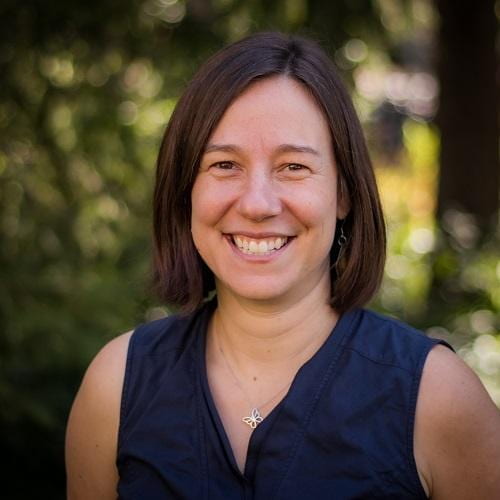
Assistant Professor | Sociology & Anthropology | College of Social & Applied Human Sciences
Research Interests: Sustainable food systems, agroecology, community development, community-engaged scholarship, Latin America.
Faculty Profile: socioanthro.uoguelph.ca/people/erin-nelson
One Health faculty interview with Dr. Erin Nelson: A Collaborative Approach to Agroecology
Dr. Erin Nelson is an Associate Professor in the Department of Sociology and Anthropology specializing in sustainable food systems and agroecology with a focus on social justice and equity. She has a few research projects on the go, both internationally and locally. One project explores the inclusion of women in agricultural research and development in Cuba and Haiti. Another, in partnership with the Ecological Farmers Association, examines farmer knowledge-sharing networks in Ontario and their role in promoting the adoption of ecological innovations.
While Dr. Nelson’s primary focus is agroecology, her research implicitly aligns with One Health. “The people, the landscapes they live on, which produce their livelihoods, and animal life that is a part of that, it’s all inherently interconnected,” she explains. “In particular when I work with colleagues in Latin America, the idea of even suggesting that people, landscape and animals would be separate would be sort of an odd conceptualization.”
By using a collaborative approach, Dr. Nelson’s research takes a holistic view of the economic realities farmers face in sustaining their livelihoods, broadening the impact of the research in ways that would not be possible through a single lens. Collaboration involving agronomists, soil scientists, and community partners, are a necessary part of this project, where the different perspectives are mutually valued. Dr. Nelson emphasizes the importance of working together across disciplines: “Being stuck in disciplinary or methodological silos is really unhelpful when we’re thinking about the big problems that are facing the world like climate change.”
That being said, collaboration is not without its challenges. It can be time-consuming, and while Dr. Nelson has found success in her own projects, she is hopeful that future research platforms, like the One Health Institute, will make cross-collaboration easier and more efficient.
__________________________________________________________________________
2024. Authored by Juliet Germann, Collaborative Specialization in One Health
Amy Newman

Associate Professor | Integrative Biology | College of Biological Science
Research interests: The long-term effects of environmental stress on the development, behaviour, physiology and fitness of wildlife; how environmental change and landscape modification can impact stress responses in animals ranging from birds to butterflies to small mammals, and how these insights may apply to understanding stress and human health.
Faculty Profile: uoguelph.ca/ib/newman
One Health faculty research summary for Dr. Amy Newman: Urban Ecosystems
As the human population continues to grow, urban sprawl and changing ecosystems have introduced novel stressors and selective pressures on wildlife species such as the grey squirrel. Dr. Amy Newman and her lab are working diligently to further understand the impact urban environments and ecosystems have on stress physiology and immune functioning of the grey squirrel population.
__________________________________________________________________________
2021. Authored by Sydney DeWinter, Collaborative Specialization in One Health.
Ryan Norris
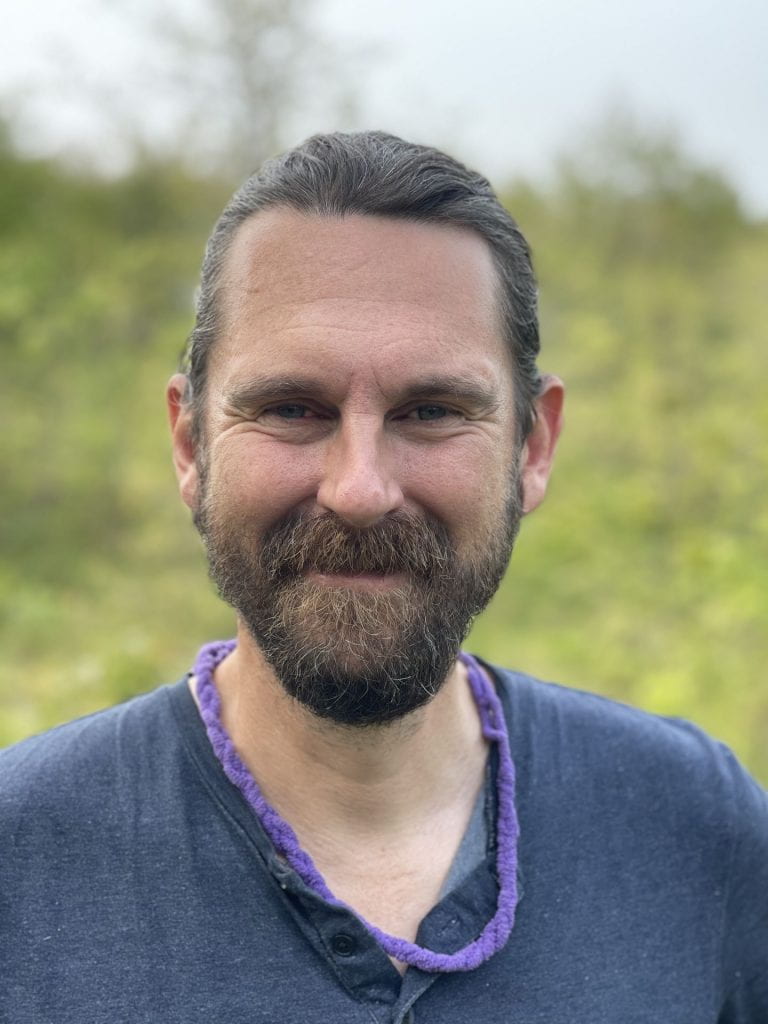
Associate Professor | Integrative Biology | College of Biological Science
Research interests: Conservation, habitat loss, climate change, endangered and threatened species, protected areas, reintroduction, migration, movement, dispersal, birds, butterflies, and salamanders.
Website: norrislab.ca
Kieran O’Doherty

Professor | Psychology | College of Social & Applied Human Sciences
Research interests: Social and ethical aspects of science & technology (human microbiome; genetics/genomics; biobanks); health data governance; participatory health governance; public engagement; public deliberation; bioethics; critical health psychology.
Faculty profile: https://dsp.uoguelph.ca
Andrew Papadopoulos

Professor | Population Medicine | Ontario Veterinary College
Research interests: Environmental public health policy and practice, healthy public policy, public health interventions, built environment and impacts on human health, food safety knowledge, attitudes, and behaviours, post-secondary student mental health, public health communication, post-secondary pedagogy, curriculum development, and program administration.
Faculty profile: https://ovc.uoguelph.ca/population-medicine/faculty/andrew-papadopoulos/
Kate Parizeau

Professor | Geography, Environment and Geomatics | College of Social & Applied Human Sciences
Research interests: Using waste management to understand social organization and human exchanges with the environment; informality, urban inequality, feminist geography and social difference; waste management systems and planning; environmental health; scholarship of teaching and learning.
Faculty profile: geg.uoguelph.ca/faculty/parizeau-kate
Beth Parker
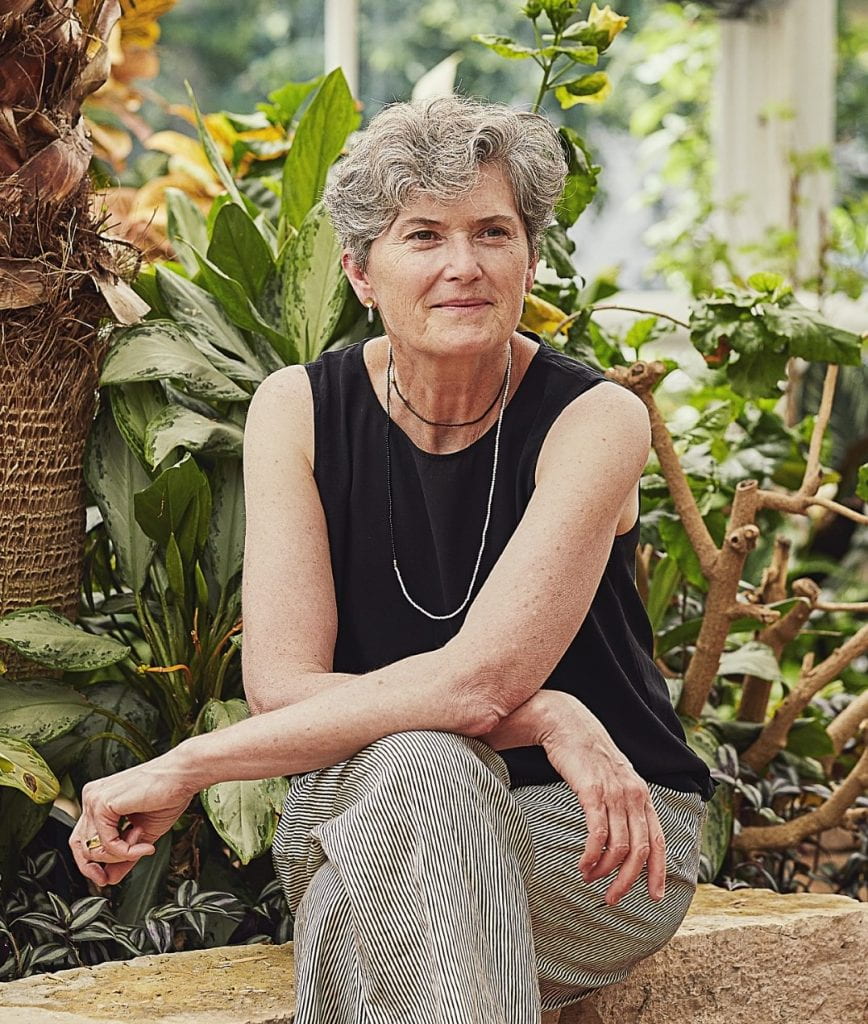
Professor | NSERC Industrial Research Chair | Director of Morwick G360 Groundwater Research Institute | Engineering | College of Engineering and Physical Sciences
Specialization in high-resolution field methods for groundwater system characterization, using innovative characterization methods to improve monitoring system design, contaminant detection, and prediction of transport mechanisms in complex flow systems including fractured rock.
UoG SOE: https://www.uoguelph.ca/engineering/people/beth-parker
Morwick G360 Groundwater Research Institute: https://g360group.org/our-team/principal-investigators/beth-parker/
University Consortium: https://theuniversityconsortium.org/pis/
Jane Parmley
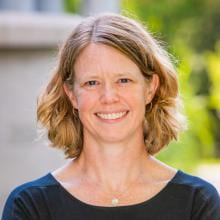
Associate Professor | Population Medicine | Ontario Veterinary College
Research Interests: One Health, Ecohealth, surveillance, antimicrobial resistance, wildlife health, zoonoses.
Faculty profile: ovc.uoguelph.ca/population-medicine/facult
David Pearl

Associate Professor | Graduate Coordinator | Population Medicine | Ontario Veterinary College
Research interests: Multi-level statistical modelling, analysis of spatial and molecular data, E. coli O157:H7, Salmonella, Campylobacter and antimicrobial-resistant organisms in humans, cattle, dogs, poultry, swine, and wildlife.
Faculty profile: ovc.uoguelph.ca/population-medicine/faculty/David-Pearl
Andrew Peregrine

Associate Professor | Pathobiology | Ontario Veterinary College
Research interests: Epidemiology and impact of parasitic infections. Sustainable control of gastrointestinal parasites of sheep. Emerging zoonotic parasite infections of companion animals.
Faculty profile: https://ovc.uoguelph.ca/pathobiology/people/faculty/andrew-s-peregrine/
One Health faculty interview with Dr. Andrew Peregrine: Tapeworms and Tenacity
I am grateful to Dr. Andrew Peregrine, who offered an hour of his time for my One Health faculty interview. Dr. Peregrine is a One Health researcher (“before One Health was called One Health”) whose research focuses on the alveolar echinococcosis tapeworm. Prior to 2009, there had been no instances of this tapeworm within North America (with the exception of one case in Alaska) (Peregrine, 2023). However in 2009, a 3-year old dog was diagnosed in British Columbia, and in 2012, a 2-year old dog was diagnosed in Ontario. Since that time, 8 cases have been diagnosed in southern Ontario, and another 28 in the rest of Canada – all of which are within a 200 km radius.
The adult parasite resides in the small intestine of definitive hosts. Definitive hosts are typically wild canids such as wolves, foxes and coyotes, but can include dogs. The eggs are shed in the feces of the definitive hosts, which become infective to intermediate hosts. Intermediate hosts can include people, which makes this tapeworm a zoonotic threat.
The problem at hand is the rapid emergence of this tapeworm, combined with its severity if left untreated (100% fatality [Kotwa et al., 2019]). It is also very expensive to treat, and treatment occurs for the remainder of life (Peregrine, 2023). The work of Dr. Peregrine highlights where this tapeworm is most likely to be found, and successfully made alveolar echinococcosis the first tapeworm reportable for both humans and animals. Its rapid emergence resulted in a national task force dedicated to its surveillance, and put this tapeworm on the radar of physicians in order to successfully manage human presentations.
Understanding where this tapeworm is most likely to present is critical for veterinarians and physicians, particularly in these regions. Successfully diagnosing this tapeworm is necessary for survival, so being aware of its clinical presentation as described in Dr. Peregrine’s research is crucial. Understanding how quickly and where this tapeworm is developing is important for public health due to its zoonotic nature.
Just as the alveolar echinococcosis tapeworm affects human and animal health, it is affected by how conducive its surrounding environment is to optimal transmission. Temperature and humidity influences the ability of eggs to survive, so understanding ecosystem health is relevant when considering the viability of this tapeworm.
Dr. Peregrine is very enthusiastic about the One Health approach. An interdisciplinary team can answer research questions that an individual researcher would be unable to address. In the opinion of Dr. Peregrine, the perspective of a team is inherently more balanced than the perspective of one individual, and therefore the most pressing research questions at hand are more likely to be addressed as a result.
While Dr. Peregrine has always encouraged interdisciplinary research, the formality of the One Health approach has made interdisciplinary research more common at the University of Guelph. The challenge with improved interdisciplinary research is that the broader the scope of the research, the more difficult it is to get funding. Dr. Peregrine believes that funding is still the primary obstacle facing the One Health approach and concept, as a result of the increased breadth of the research.
_________________________________________________________________________
2023. Authored by Emma Harris, Collaborative Specialization in One Health
Jim Petrik

Professor | Biomedical Sciences | Ontario Veterinary College
Research interests: Female reproductive biology and ovarian cancer, developing therapeutics for the treatment of late-stage ovarian cancer, focusing on anti-angiogenic therapies for inhibiting new growth of blood vessels supplying the tumours.
Faculty profile: https://ovc.uoguelph.ca/biomedical-sciences/people/faculty/james-petrik/
Michèle Preyde

Professor | Family Relations and Applied Nutrition | College of Social & Applied Human Sciences
Research interests: Practitioner-researcher collaboration, biopsychosocial health and mental health, children and youth accessing intensive mental health services, and the psychosocial impacts of illness on vulnerable populations.
Faculty profile: family.uoguelph.ca/people/michèle-preyde
One Health faculty interview with Dr. Michèle Preyde: Biopsychosocial Impacts
Improving the overall health of children and youth with moderate to severe psychiatric illness is a priority, as indicators of poor health are commonly reported by this population (e.g. low physical activity, poor nutrition, and unhealthy use of personal technology devices). Dr. Michèle Preyde from the University of Guelph, child and adolescent psychiatrists, and multi-disciplinary teams have documented the poor biopsychosocial health and behaviours of youth accessing intensive mental health care. Next, they are hoping to research ways to improve the overall health of these youth, like fostering their connection with nature via promoting outdoor activity.
It is widely accepted that spending time in nature is beneficial to physical, mental, and social health, and many studies have reported strong associations between nature contact and health outcomes among youth. By creating opportunities for youth with moderate to severe psychiatric illness to engage in positive activities in parks or wilderness settings, Dr. Preyde’s team hopes to simultaneously improve health outcomes among this population of youth and provide opportunities for them to become stewards of their local ecosystems. This research has potential long-lasting health benefits for both youth and the environment.
Dr. Preyde is a professor in the Department of Family Relations and Applied Nutrition whose research involves populations who access intensive mental health care or hospital-based care. Her team has designed multiple studies to investigate the psychosocial impacts of illness, including bettering supports available for parents of infants in the NICU, and investigating the psychosocial impacts of cancer among adults. The impact of Dr. Preyde’s research investigating the psychosocial impacts of illness has been enhanced using One Health as an approach, because it reinforces the importance of biopsychosocial health and wellbeing.
Thanks to Dr. Preyde for taking the time to be interviewed for the One Health Institute page.
__________________________________________________________________________
2024. Authored by Rochelle Thompson, Collaborative Specialization in One Health
Ryan Prosser
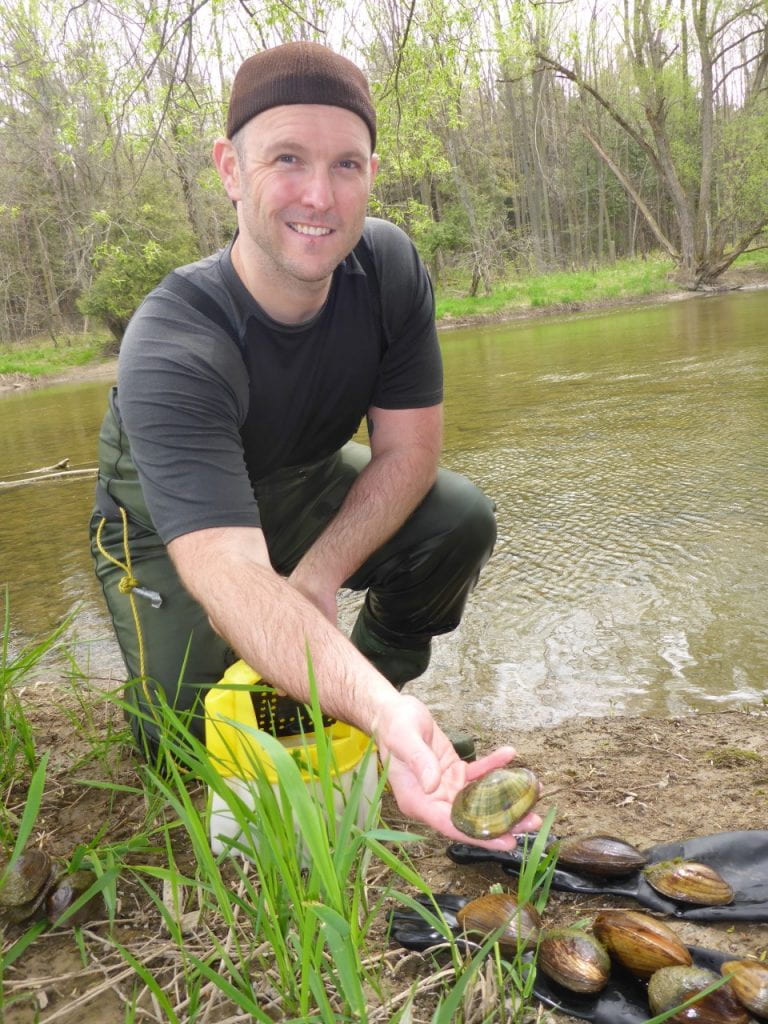
Associate Professor | Environmental Sciences | Ontario Agricultural College
Research interests: Environmental toxicology, the fate of chemicals in the environment, toxicological risk assessment, and freshwater and marine mollusk biology.
Faculty Profile: ses.uoguelph.ca/people/ryan-prosser
Website: wisdomofthemoose.com
One Health faculty interview with Dr. Ryan Prosser: Exploring Chemical Impacts – Eco-Toxicology Unveiled
Dr. Ryan Prosser is a researcher out of the School of Environmental Sciences whose interests include the field of ecotoxicology, in particular the risks of microplastics and agricultural pesticides, on aquatic and soil-based ecosystems. The goals of his research are to determine whether these chemicals pose a significant impact at environmentally relevant levels, with the overarching goal to reduce the negative impact of chemical use on the wider environment and ecosystems.
In many ways, Dr. Prosser’s research interacts with the health of ecosystems, animals, and humans; by investigating the impacts of societal-use of chemicals on foundational ecosystems – there are major bottom-up trophic-level consequences which interact with the health of wildlife, agriculture, and ultimately humans. His work sheds light on the potential long-term health effects through both direct and indirect interactions with man-made toxins, especially microplastics. Dr. Prosser’s research exhibits direct links to One Health in the form of environmental impact assessments dealing with the complex interactions of how economic and social gains intersect with the negative ecological impacts of chemical production associated with man-made toxins.
Dr. Prosser’s research is contextualized within the framework of One Health through highlighting the interconnectedness of environments, human well-being, and ecosystem-services. Some of the ways Dr. Prosser has been able to implement One Health methodologies were seen during his research on optimizing feed and fish health with freshwater aquaculture in the Great Lakes. In pursuing a transdisciplinary approach by working with both regional industry and First Nations stakeholders; he had overcome difficulties associated with the conflicting missions among these groups. In doing so, Dr. Prosser was able to bridge the gap between economic interests and environmental stewardship.
_________________________________________________________________________
2023. Authored by Riley Oremush, Collaborative Specialization in One Health
Ricardo Ramirez

Adjunct Professor | Environmental Design and Rural Development | Ontario Agricultural College, and Independent Researcher and Evaluator
Research interests: Evaluation, research and mentoring; communication for development: planning & capacity development; knowledge management for rural development & agriculture: capacity development and action research; participatory planning and evaluation approaches; multi-stakeholder and collaborative approaches for natural resource management.
Co-principal investigator: https://evaluationandcommunicationinpractice.net/
Core team member: https://www.desiraliftcommunity.org/
David Renaud

Assistant Professor | Population Medicine | Ontario Veterinary College
Research interests: Risk factors associated with mortality at veal operations, developing strategies to reduce antimicrobial use in the veal sector, evaluating the utility of navel disinfection in dairy calves, and identifying new technologies to improve calf health and welfare.
Faculty profile: ovc.uoguelph.ca/population-medicine/faculty/David-Renaud
Davar Rezania
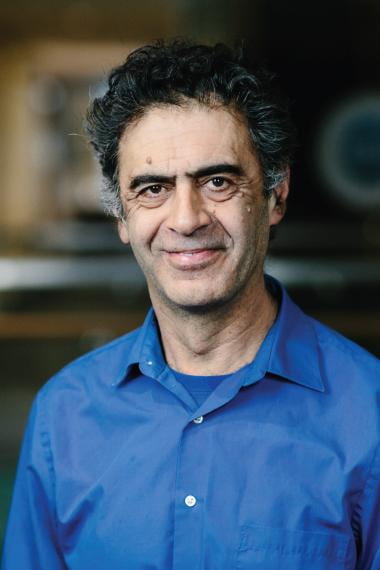
Associate Professor | Department Chair | Management | Gordon S. Lang School of Business and Economics
Research interests: Project management, accountability, team leadership, sustainable economics, sustainable agriculture, biomimicry.
Faculty profile: uoguelph.ca/lang/people/davar-rezania
Eduardo de Souza Ribeiro

Associate Professor | Animal Biosciences | Ontario Agricultural College
Research interests: Interplay between animal health, nutrition, and reproduction and their impact on livestock production efficiency and sustainability.
Faculty profile: animalbiosciences.uoguelph.ca/abscpeople/eribeiro
Nicole Ricker
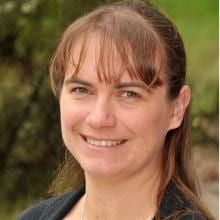
Assistant Professor | Pathobiology | Ontario Veterinary College
Research interests: Application of big data analysis techniques to disease informatics, microbial sequencing data in precision agriculture applications, genomics and metagenomics, antimicrobial resistance, the role of the microbiome in disease progression/immune development, One Health approaches to AMR and antibiotic alternatives.
Faculty profile: https://ovc.uoguelph.ca/pathobiology/people/faculty/nicole-ricker/
One Health faculty interview with Dr. Nicole Ricker: Antimicrobial Resistance in Livestock
Dr. Nicole Ricker is an assistant professor in the Pathobiology department at the University of Guelph. Also, she is a One Health-affiliated faculty member. Her research focuses on understanding how antimicrobial resistance (AMR) distributes within bacteria in the gastrointestinal tract of livestock. Her group study not only pathogens but also commensal bacteria within the microbiome of the animals. They are also developing a surveillance platform (DARTE-QM)1 to collect AMR data across a One Heath spectrum.
This research contributes to animal health by studying the diversity of AMR present within animals to help prioritize which antimicrobials can be used or which ones should be removed from common use, to have the best options available for the farmers. This can inform policy in terms of knowing what AMR is there and monitoring for emerging AMR. For the surveillance project, one of the goals is to understand whether policy changes in antimicrobial use are having the desired effect or not (decrease of AMR or increase of a different AMR as a result of those changes). The research monitors AMR genes directly from diverse sources, including fecal samples, the food chain, and the environment (soil, water, wastewater).
Using a One Health approach has improved the collaboration with a broad diversity of other researchers with a common goal: to improve public health policies related to antimicrobial use. For that, they communicate through a One Health perspective with not only people from the animal context but also with people in wastewater surveillance and environmental sampling, and they communicate and coordinate to find share targets to monitor over time. Most of the collaborators are from Guelph and government agencies across Canada.
One of the challenges this research has is trying to understand the role different sectors play in AMR emergence. To understand whether the AMR that we see in hospitals is the same that we see in animals and whether there is a direct correlation, it is essential to improve surveillance across the different sectors. This is a challenging goal that, if achieved, can help to identify mitigation strategies for emerging AMR in both animal and human health sectors.
________________________________________________________________________
2022. Authored by Manuel Perez Maldonado, Collaborative Specialization in One Health.
Darren Robinson
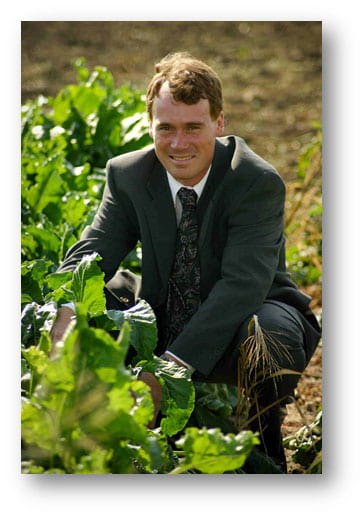
Professor | Weed Management Specialist | Plant Agriculture | Ontario Agricultural College
Research interests: Weed management in vegetable crops, the effects of cultural practises and soil fertility on crop-weed competition and the effect of herbicide residues on the production of vegetables.
Faculty profile: plant.uoguelph.ca/drobinso
Silvia Sarapura
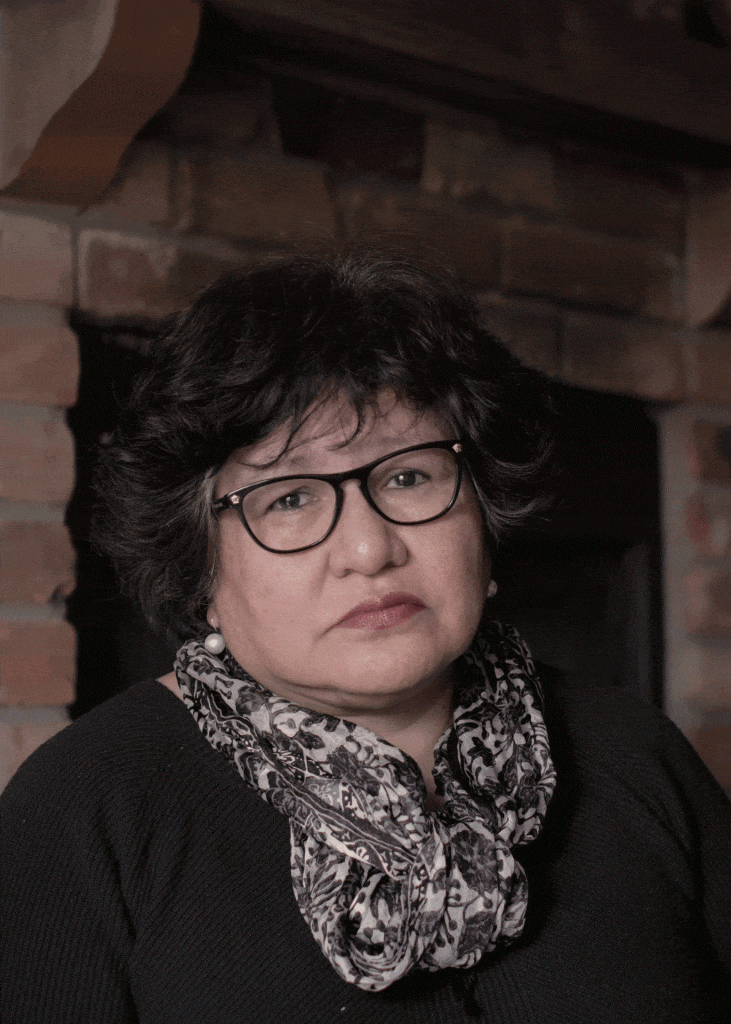
Assistant Professor | Environmental Design and Rural Development | Ontario Agricultural College
Research interests: Gender planning in agri-food systems, gender transformative change, farmer-led research, indigenous food systems, integrated seed systems, international research for development, gender and intersectionality in agri-food systems.
Faculty profile: uoguelph.ca/sedrd/people/silvia-sarapura
Praveen Saxena

Professor | Director, Gosling Research Institute for Plant Preservation | Plant Agriculture | Ontario Agricultural College
Research institute: Regulatory signals that modulate plant development and stress mitigation; development of in vitro technologies for propagation and conservation of plant genetic resources including endangered, medicinal, ornamental, and food crops for horticultural industries.
Faculty profile: plant.uoguelph.ca/psaxena
Flavio Schenkel

Professor | CGIL Director | Animal Biosciences | Ontario Agricultural College
Research interests: Genetics and genomics in livestock breeding; using genomic information to enhance genetic evaluation and genomic selection.
Faculty profile: animalbiosciences.uoguelph.ca/abscpeople/schenkel
Marcel Schlaf

Professor | Chemistry | College of Engineering and Physical Sciences
Research interests: Chemical synthesis, catalysis, biomass conversion, sustainable chemistry & metallurgy, synergistic co-processing & recycling.
Profile: schlaflab.uoguelph.ca/
Rebecca Shapiro
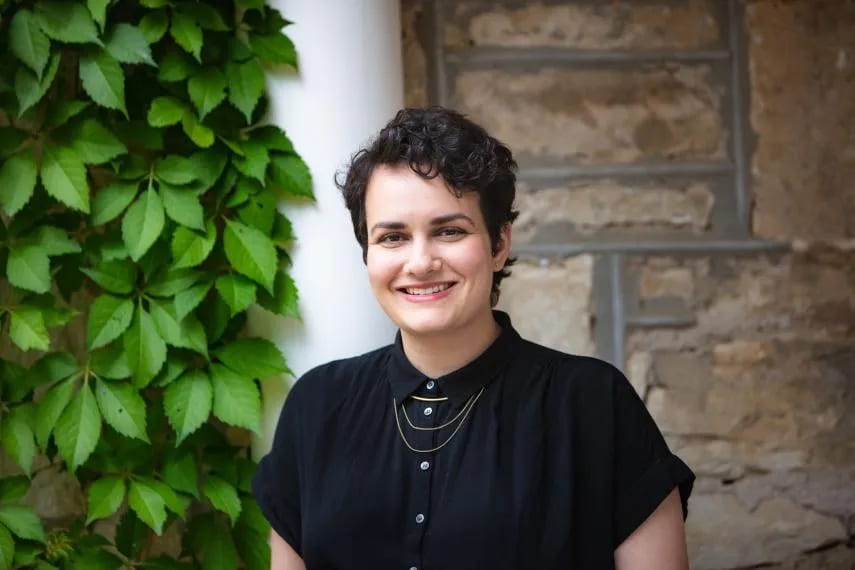
Associate Professor | Molecular and Cellular Biology | College of Biological Science
Research interests: Genomic technologies (CRISPR-Cas9, high-throughput functional genomic analysis), fungal pathogenesis (microbial fungal pathogens and the mechanisms by which they cause disease), antifungal drug resistance.
Faculty profile: uoguelph.ca/mcb/people/dr-rebecca-shapiro
Shayan Sharif

Professor | Interim Vice-President Research and Innovation | Pathobiology | Ontario Veterinary College
Research interests: Immunology of avian influenza virus infection, vaccine development against low pathogenicity and highly pathogenic avian influenza viruses, innovation in chicken gut microbiota manipulation for control of enteric zoonotic pathogens
Faculty profile: https://ovc.uoguelph.ca/pathobiology/people/faculty/shayan-sharif/
Paul Sibley

Professor | Director, School of Environmental Sciences | Ontario Agricultural College
Research interests: Aquatic and sediment toxicology, ecological risk assessment, benthic invertebrate and zooplankton community ecology, aquatic-terrestrial interactions, disturbance ecology.
Faculty profile: ses.uoguelph.ca/people/paul-sibley
Jennifer Silver
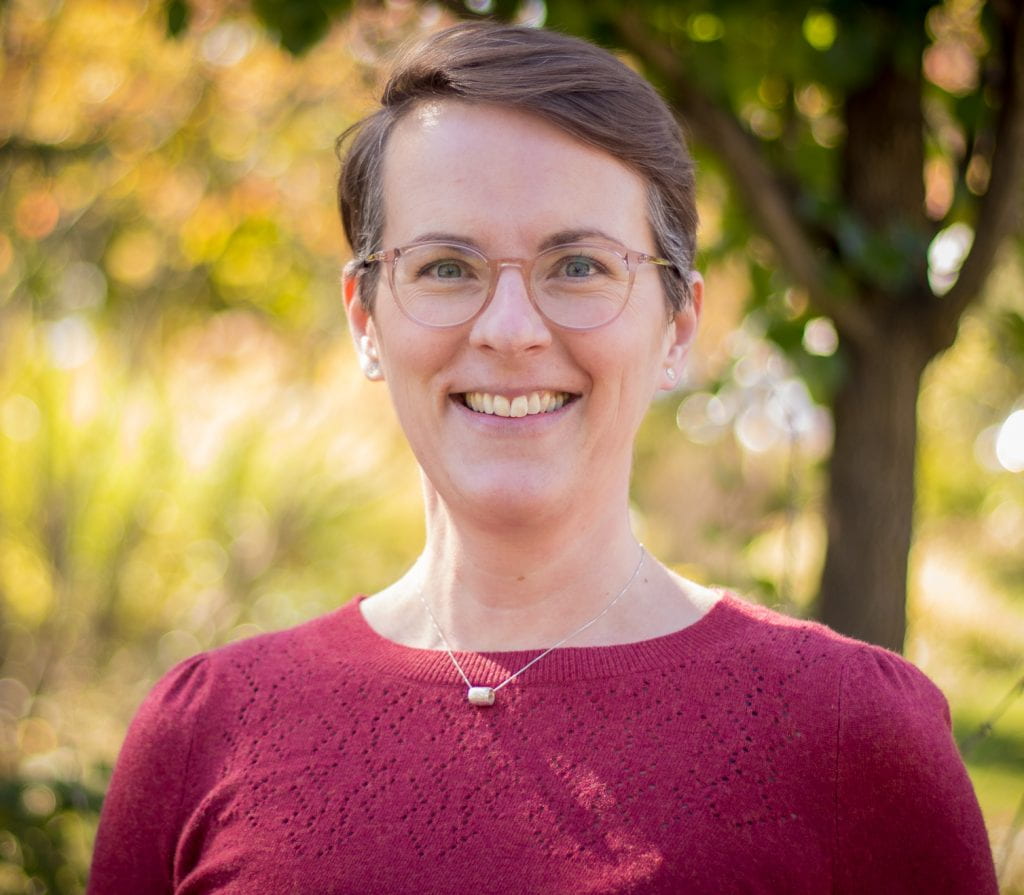
Professor | Geography, Environment and Geomatics | College of Social and Applied Human Sciences
Research interests: Fisheries, aquaculture, and coastal communities; international ocean governance; indigenous fishing rights; media and technology in environmental governance.
Faculty profile: geg.uoguelph.ca/faculty/silver-jennifer
Joshua August (Gus) Skorburg

Assistant Professor | CARE-AI affiliate | Philosophy | College of Arts
Research interests: Bioethics, AI ethics, neuroethics, business ethics; virtue theory, philosophy of cognitive science, experimental philosophy; mHealth, digital phenotyping, computational psychiatry, computational social science.
Faculty profile: uoguelph.ca/arts/people/joshua-august-gus-skorburg
Justin Slater

Assistant Professor | Mathematics and Statistics | College of Engineering and Physical Sciences
Research interests: Statistical epidemiology, Bayesian statistics, spatiotemporal statistics, infectious disease modelling.
Faculty profile: https://www.justinslater.ca/home
Dave Snow

Associate Professor | Political Science | College of Social & Applied Human Sciences
Research interests: Health policy; federalism; the Canadian Charter of Rights and Freedoms.
Faculty profile: polisci.uoguelph.ca/people/dave-snow
Kelsey Spence

Assistant Professor | Population Medicine | Ontario Veterinary College
Research interests: Emerging diseases, biosecurity, outbreak preparedness, risk perceptions and health behaviours, risk mitigation strategies, and knowledge translation.
Faculty profile: ovc.uoguelph.ca/population-medicine/faculty/Kelsey-Spence
One Health faculty research summary for Dr. Kelsey Spence: Disease Preparedness
Sporadic outbreaks of exotic vector-borne diseases in the British horse industry can have significant health and economic consequences. By interviewing equine veterinarians, a multidisciplinary team explored the barriers, opportunities, and attitudes towards exotic disease preparedness in Great Britain. Dr. Kelsey Spence of the Ontario Veterinary College is part of the team with other researchers from the United Kingdom, Hong Kong, and Australia.
______________________________________________________________________
2021. Authored by John Mallare, Collaborative Specialization in One Health.
John Srbely
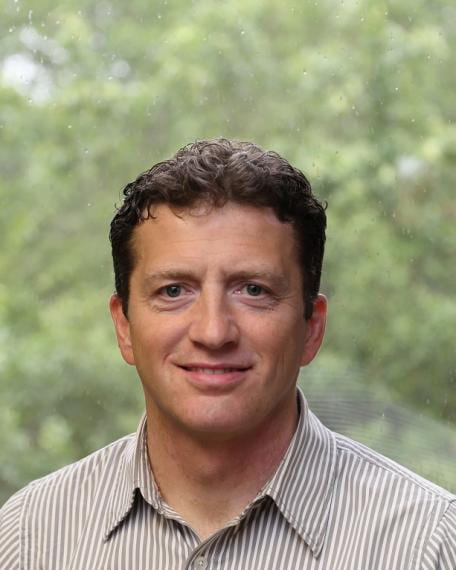
Associate Professor | Human Health and Nutritional Sciences | College of Biological Science
Research interests: Clinical biomechanics and neurophysiology; chronic pain and joint function associated with aging and osteoarthritis, myofascial pain and fibromyalgia; the pathophysiologic mechanisms of myofascial trigger points; treatment of pain and joint/muscle dysfunction in chronic musculoskeletal disease.
Faculty profile: uoguelph.ca/hhns/people/dr-john-srbely
Deb Stacey

Associate Professor | Informatics Theme Lead, GBADs | Computer Science | College of Engineering and Physical Sciences
Research interests: Development, use and analysis of knowledge engineering and machine intelligence techniques (particularly ontologies), data-driven ontology evaluation and ontology development for simulation parameters.
Faculty profile: uoguelph.ca/computing/people/deborah-stacey
Anna Stanley

Associate Professor | Geography, Environment, and Geomatics | College of Social & Applied Human Sciences
Research interests: Indigenous environmental justice, environmental policy, resource governance and settler colonialism, mineral and uranium mining, taxation, and governance, Indigenous sovereignty, and political economies of settler colonialism, politics of risk, toxic exposure, environmental harm.
Faculty profile: geg.uoguelph.ca/faculty/stanley-anna
One Health faculty interview with Dr. Anna Stanley: Deconstructing Settler Colonialism
Settler colonialism is foundational to how we govern, extract, and manage fall-out from the extraction of natural resources. Dr. Anna Stanley, an Assistant Professor from the Department of Geography, Environment & Geomatics is dedicated to research that uncovers settler colonial structures and that supports Indigenous resistance movements.
Her work has both direct and indirect benefits to human health by addressing land alienation, ecosystem disruption, toxic exposure of people and ecosystems, and by deconstructing the social systems and structures that create harm in the first place. Social systems and ecosystems are inextricably linked. Working to address settler colonialism and extractivism therefore benefits animal and environmental health, firstly by deepening our understanding of the root causes of environmental contamination, and secondly by supporting Indigenous land defense and anti-colonial land relations.
Dr. Stanley’s approach to research is core to who she is as a scholar and a person, and has been a journey of learning from and listening to Indigenous scholars and practitioners, as well as colleagues and students. A challenge she faces is how to responsibly engage settler colonialism, and Indigenous lived experiences of settler colonialism, without being extractive herself. She attempts to overcome this by critically reflecting on her own positionality, and politically orienting her research to critique structures of settler colonialism and to support Indigenous resistance.
_______________________________________________________________________
2023. Authored by Britteny Kyle, Collaborative Specialization in One Health
Travis Steffens
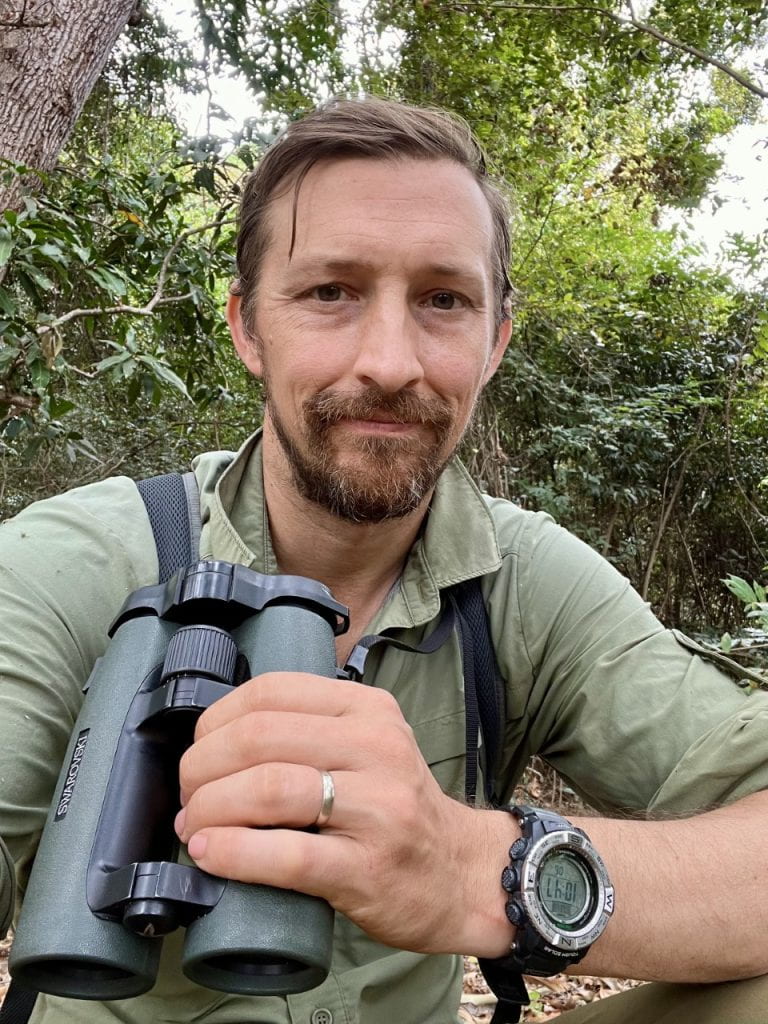
Assistant Professor | Sociology and Anthropology | College of Social & Applied Human Sciences
Research interests: I leverage conservation biogeography, spatial ecology, and One Health approaches to understand how lemurs interact with and respond to human-caused disturbance. I am also interested in how humans are impacted by applied conservation measures targeting lemurs and their habitats. Specifically, I am interested in understanding the risk factors associated with zoonotic/anthroponotic transmission among humans and their domestic animals, wildlife, and their shared environment.
Faculty profile: socioanthro.uoguelph.ca/people/travis-steffens
Dirk Steinke

Adjunct Professor | Integrative Biology | College of Biological Science
Research interests: Biodiversity research, conservation genetics, community ecology, farmland diversity, plant-pollinator interactions, multi-species population genetics, joint species distribution modelling.
Faculty profile: ecologicalgenomics.ca
Deborah Stienstra

Professor | Director, Live Work Well Research Centre | Jarislowsky Chair, Families and Work | Political Science | College of Social & Applied Human Sciences
Research interests: The intersections of disabilities, gender, childhood, and Indigenousness; disability rights, disability policy, women and gender and politics, gender, and work.
Faculty profile: polisci.uoguelph.ca/people/deborah-stienstra
Live Work Well Research Centre: liveworkwell.ca/
Hannah Tait Neufeld

Adjunct Professor | Family Relations and Applied Human Nutrition | College of Social & Applied Human Sciences
Research interests: Indigenous health, food environments, community-based participatory research, Indigenous food systems, maternal and child health, global health, infant and young child feeding, nutrition policy, and chronic disease prevention.
Faculty profile: family.uoguelph.ca/people/hannah-tait-neufeld
Graham Taylor

Professor | Research Director, Vector Institute | Engineering | College of Engineering and Physical Sciences
Research interests: My research spans a number of topics in deep learning. I am interested in open problems such as how to effectively learn with less labelled data, and how to build human-centred AI systems. I am interested in methodologies such as generative modelling, graph representation learning and sequential decision making. I also pursue applied projects that leverage computer vision to mitigate biodiversity loss.
Faculty profile: uoguelph.ca/engineering/content/faculty/graham-w-taylor
Eranga Ukwatta

Associate Professor | Engineering | College of Engineering and Physical Sciences
Research interests: Machine learning for medical imaging, deep learning, medical image analysis, image segmentation and registration, myocardial tissue characterization, analysis of digital histopathology images, and computational modelling of the heart.
Faculty profile: uoguelph.ca/engineering/people/eranga-ukwatta-phd-peng
Siavash Vahidi
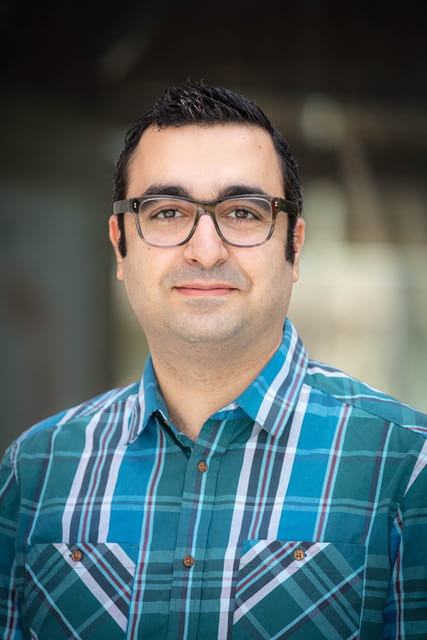
Assistant Professor | Molecular and Cellular Biology | College of Biological Science
Research interests: Structural biology and biochemistry, role of protein degradation in antimicrobial resistance and cancer, mass spectrometry, nuclear magnetic resonance.
Faculty profile: uoguelph.ca/mcb/people/dr-siavash-vahidi
Glen Van Der Kraak

Professor | Integrative Biology | College of Biological Science
Research interests: Multifactorial regulation of ovarian function in teleosts, evaluation of reproductive fitness in fish, endocrine disruption in fish and amphibians.
Faculty profile: uoguelph.ca/ib/vanderkraak
Laura Van Eerd
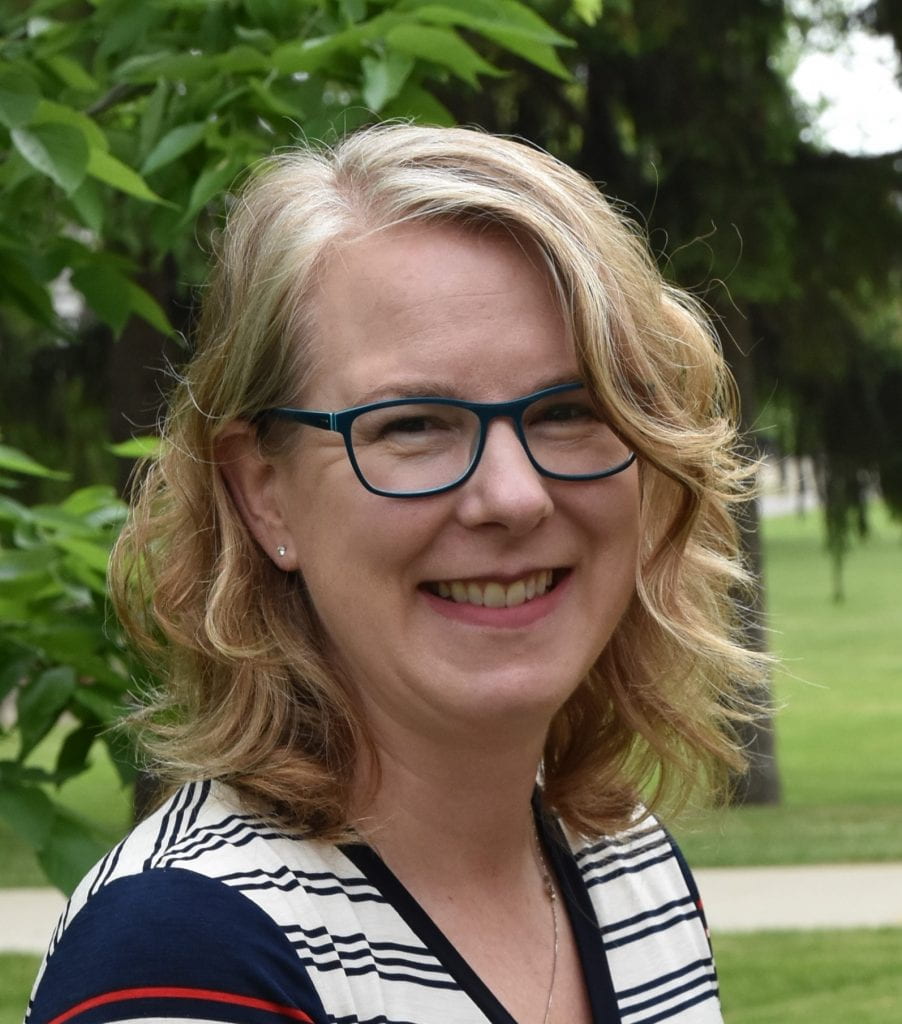
Professor | Research Program Director, Ontario Agri-Food Innovation Alliance | Co-Executive Director, Soils at Guelph | Environmental Sciences | Ontario Agricultural College
Research interests: Sustainable soil management, agriculture, cover crops, nitrogen biogeochemical cycling, soil health.
Faculty profile: ses.uoguelph.ca/people/laura-l-van-eerd
Lauren Van Patter

Assistant Professor | Kim & Stu Lang Professor in Community & Shelter Medicine | Clinical Studies | Ontario Veterinary College
Research interests: animal studies, ‘living well’ in multispecies communities, multispecies justice, multispecies health equity, veterinary humanities & social sciences, human-animal bond, companion animals, environmental humanities.
Faculty profile: https://ovc.uoguelph.ca/clinical-studies/faculty/lauren-van-patter
One Health faculty interview with Dr. Lauren Van Patter: Breaking Barriers, Enhancing Well-being
Dr. Lauren Van Patter’s research interests lie within addressing the problems with access to veterinary care for companion animals in diverse communities, and understanding barriers people face to access companion animal care. The goal of her research is to enhance well-being in more-than-human communities utilizing a One Health approach, focusing on the interconnectedness of human, animal and environmental health. Dr. Van Patter’s research is guided by the understanding that community health should not be represented only by human community members voices and experiences.
This research promotes animal health by identifying and minimizing barriers associated with access to veterinary care, which ensures more equitable access for companion animals in marginalized communities. Through this, her research addresses human health by mitigating the emotional and financial stress associated with seeking veterinary care for their companions. Dr. Van Patter’s research contributes to ecosystem health by identifying and evaluating the impact of environmental factors such as climate change, on animal health and the broader ecosystem.
Utilizing a One Health approach in her research, allows for a more complete understanding of health, through the exploration of the interconnectedness of human, environmental and animal well-being. The approach promotes the use of multiple frameworks and facilitates improved collaboration between a diverse network of disciplines while also including the experience of extra-scientific members.
Dr. Van Patter has overcome the challenge of integrating justice ethics into the framework by utilizing a One Health approach. She has successfully carved out space in the One Health dialogue to address ethical considerations, ensuring a more comprehensive understanding of health and well-being for all interconnected elements.
Dr. Van Patter enjoys the opportunity to learn from communities and the collaboration opportunities her research affords her, and through her research she has been able to learn and understand the world in many ways, meet interesting people and learn from their stories.
_________________________________________________________________________
2023. Authored by Natassia Lambrou, Collaborative Specialization in One Health
Terry Van Raay

Associate Professor | Molecular and Cellular Biology | College of Biological Science
Research interests: signalling processes involved in disease and development, the Wnt signalling pathway, negative feedback regulators of Wnt signalling; Nkd1 and Axin2.
Faculty profile: uoguelph.ca/mcb/people/dr-terry-van-raay
Jeji Varghese

Associate Professor | Sociology and Anthropology | College of Social & Applied Human Sciences
Research interests: As a critical community engaged scholar and environmental sociologist, her research interests include Indigenous and Western Science knowledge systems engagement in land/water governance/stewardship/conservation, just climate transitions, socio-ecological sustainability, and a scholarship of teaching and learning focused on community engaged learning and land based pedagogies.
Faculty profile: socioanthro.uoguelph.ca/people/jeji-varghese
Matthew Vickaryous

Associate Professor | Biomedical Sciences | Ontario Veterinary College
Research interests: Using geckos and other organisms to study mechanisms of wound healing, regeneration, and development, scar-free cutaneous wound healing, neurogenesis, spinal cord regeneration, and cardiac repair.
Faculty profiles: ovc.uoguelph.ca/biomedical-sciences/people/faculty/Matthew-K-Vickaryous
Scott Walsh

Adjunct Professor | Pathobiology | Ontario Veterinary College
Research interests: Oncolytic viruses and viral vectored vaccines. T cell biology, autoimmunity, and cancer immunotherapy.
Faculty profile: https://ovc.uoguelph.ca/pathobiology/people/faculty/scott-walsh
Keith Warriner

Professor | Food Science | Ontario Agricultural College
Research interests: The significance of the dormant state in pathogens and how this contributes to temporal antibiotic resistance along with survival in the environment. Other research focuses on developing interventions to inactivate pathogens associated with fresh produce and meat. I am also on the Egg Farmers of Ontario SE Advisory board, current Editor-in-Chief of Food Microbiology journal and part of the Joint Expert Microbiology Risk Assessment of Codex Alimentarious.
Faculty profile: uoguelph.ca/foodscience/people/keith-warriner
Quinn Webber

Assistant Professor | Integrative Biology | College of Biological Science
Research interests: Behavioural and spatial ecology: social behaviour, habitat selection and parasitism in individual wild animals within a One Health framework. Implementing classic ecological theory (optimal foraging theory) with contemporary methods (social network analysis and habitat selection analyses) to test multiple competing hypotheses.
Faculty profile: uoguelph.ca/ib/node/1828
Quinn’s Website: qwebber.weebly.com
One Health faculty interview with Dr. Quinn Webber: Disease Webs
Social behaviours can have a range of impacts on the health of an individual, a population and even a community with new or additional interactions causing potential domino effects of disease transfer. Humans are having dramatic effects on the natural world, altering the quality and distribution of habitats, and subsequently influencing the methods and frequencies of inter and intraspecific animal interactions.
Dr. Quinn Webber recognizes this problem as one uniquely suited to a One Health approach because of the need to proactively monitor wildlife social behaviours and distributions to protect human and animal health by preventing future disease outbreaks. Dr. Webber’s research specifically investigates how environmental and behavioural variations play a role in the fitness and disease outcomes of bat and caribou populations in Ontario and Newfoundland respectively. The environments of these species make them ideal models for testing hypotheses concerning how habitat alterations influence behaviour and disease as these two systems represent the higher and lower ends of direct human impact. As these study systems span a large distance and involve multiple habitats, jurisdictions, species, and human communities, Dr. Webber has created a network of experts from many disciplines to form a team with broad skills to tackle these complex projects.
Dr. Webber believes that the greatest asset of using a One Health approach is collaboration and improved communication, allowing for those from different backgrounds to come together to tackle complex problems in ways which previously did not seem possible. The collaborative nature of One Health is an asset, but it is also one of the biggest challenges of using the approach. To overcome this hurdle, in Dr. Webber’s experience, stepping outside of your comfort zone and connecting with other disciplines via conferences, seminars, or job boards helps to strengthen your network and reduce the challenges of creating an interdisciplinary team.
_________________________________________________________________________
2022. Authored by Alexandria Cosby, Collaborative Specialization in One Health.
Scott Weese

Professor | Pathobiology | Ontario Veterinary College
Research interests: Bacterial infections in animals and humans, methicillin-resistant staphylococcal infections, Clostridium difficile, antimicrobial resistance, emerging infectious diseases, infection control.
Faculty profile: ovc.uoguelph.ca/pathobiology/people/faculty/Scott-Weese
Melanie Wills

Director, G. Magnotta Lyme Disease Research Lab | Molecular and Cellular Biology | College of Biological Science
Research interests: Lyme disease, tick-borne infections, bacterial pathogenesis, complex and chronic illness, host defences.
Faculty profile: gmagnottaresearch.com/the-team
Boyer Winters
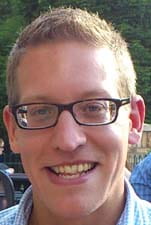
Professor | Psychology | College of Social & Applied Human Sciences
Research interests: The neurobiology of cognition, memory acquisition, consolidation, reconsolidation, Alzheimer’s disease and schizophrenia.
Faculty profile: uoguelph.ca/psychology/users/boyer-winters
Geoffrey Wood
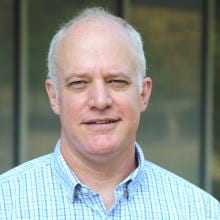
Professor | Co-Director, Institute for Comparative Cancer Investigation | Pathobiology | Ontario Veterinary College
Research interests: Pathology of neoplasia, multi-species comparative cancer genetics, biomarkers of cancer in dogs, microRNA in cancer, cancer resistance in large, long-lived animals.
Faculty profile: https://ovc.uoguelph.ca/pathobiology/people/faculty/geoffrey-wood/
Paul Woods
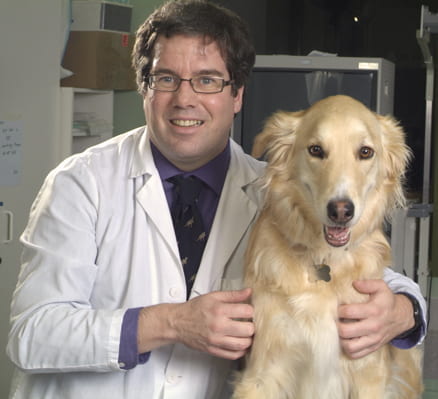
Professor | Clinical Studies | Ontario Veterinary College
Research interests: Oncology and infectious disease.
Faculty profile: https://ovc.uoguelph.ca/clinical-studies/faculty/j-paul-woods/
Sarah Wootton

Associate Professor | Pathobiology | Ontario Veterinary College
Research interests: Gene therapy, vectored immunoprophylaxis (VIP), oncolytic virotherapy, viral vectored vaccines, viral pathogenesis.
Faculty profile: https://ovc.uoguelph.ca/pathobiology/people/faculty/sarah-wootton/
Sam Workenhe

Assistant Professor | Pathobiology | Ontario Veterinary College
Research interests: Cancer and immunotherapy; viruses of veterinary importance; vaccines.
Faculty profile: https://ovc.uoguelph.ca/pathobiology/people/faculty/samuel-workenhe/
Sunghwan Yi

Professor | Marketing and Consumer Studies | Gordon S. Lang School of Business and Economics
Research interests:
- Automatic determinants of addictive, impulsive and compulsive consumer behaviour (e.g., excessive buying, gambling).
- Factors contributing to successful self-control versus self-control failure in excessive consumption.
- Affective motives of engaging in excessive consumption behaviour: Coping with aversive self-related emotions.
- The use of choice architecture (nudging) and other micro-environmental changes to induce the choice of fruits, vegetables and legume-rich food in institutional food contexts.
- Optimization of mixed dish offerings with partially substituting resource-intensive animal protein with plant-based ingredients (esp. legume): synergy among healthiness, environmental sustainability and sensory pleasure.
Faculty profile: uoguelph.ca/lang/people/sunghwan-yi
Richard G. Zytner

Professor | Engineering | College of Engineering and Physical Sciences
Research interests: Soil remediation technology with emphasis on SVE and bioventing, contaminant transport parameters, treatment of vegetable and fruit wash water and residues.
Faculty profile: uoguelph.ca/engineering/content/faculty/richard-g-zytner
Affiliated Postdoctoral Fellows
Dasiel Obregon

Postdoctoral Fellow | Environmental Sciences | Ontario Agricultural College
Research interests: Environmental microbiology, microbial ecology; metabarcoding, metagenomics and microbiome analysis; epidemiology, veterinary microbiology and parasitology, ecoepidemiology of vector-borne pathogens, host-microbiome-pathogen interactions.
Sugandha Raj

Postdoctoral Fellow | Pathobiology | Ontario Veterinary College
Research interests: Zoonotic avian diseases in the contexts of transmission, immune mechanisms, disease modelling and surveillance.
Christina Rochus

Postdoctoral Fellow | Animal Biosciences | Ontario Agricultural College
Research interests: I am a postdoctoral researcher working in Christine Baes’ group on the Resilient Dairy Genome Project. My research interests include working with genomic data to study genetic diversity and adaptation in domestic and wild animals.
Last updated: 3/7/2024



